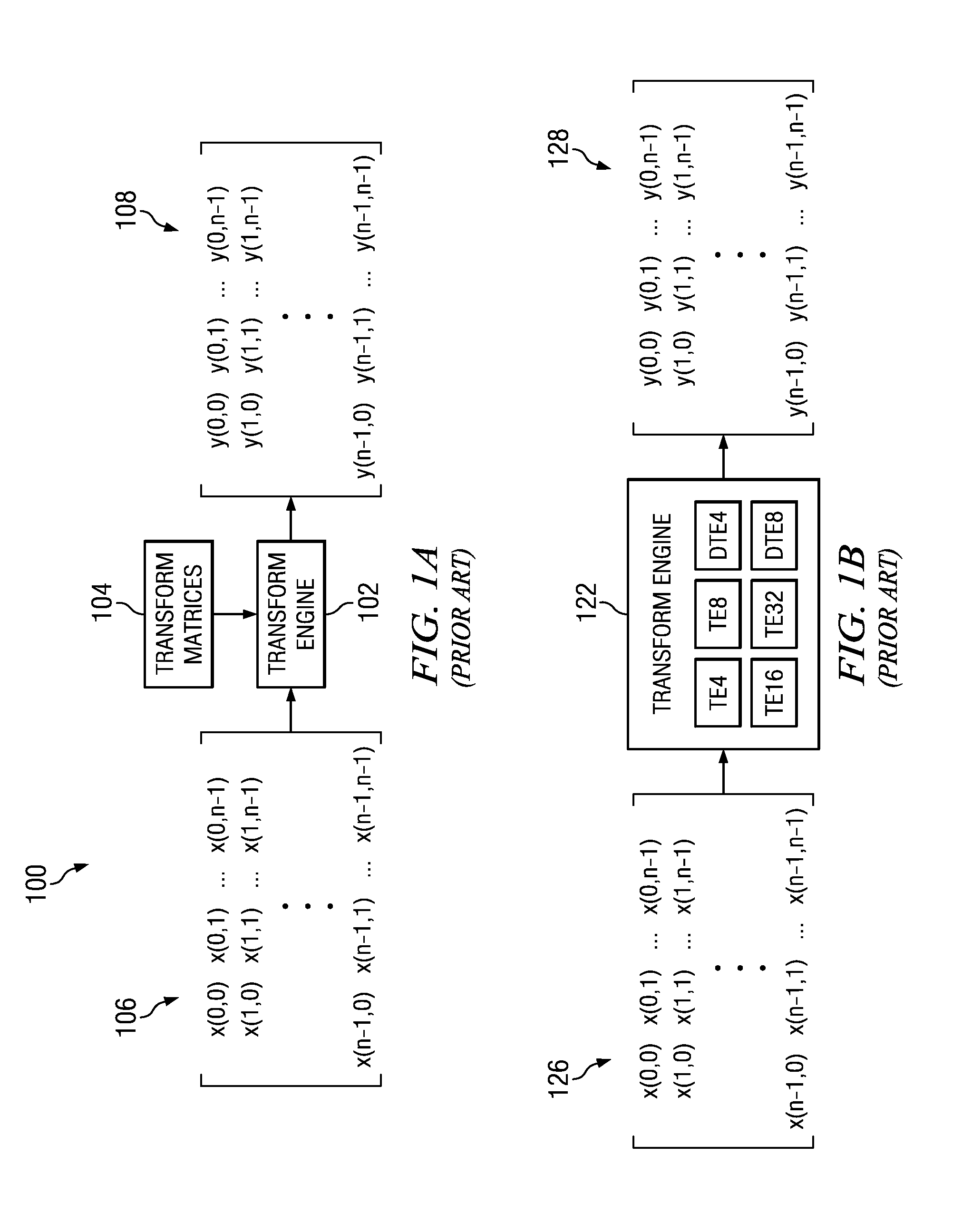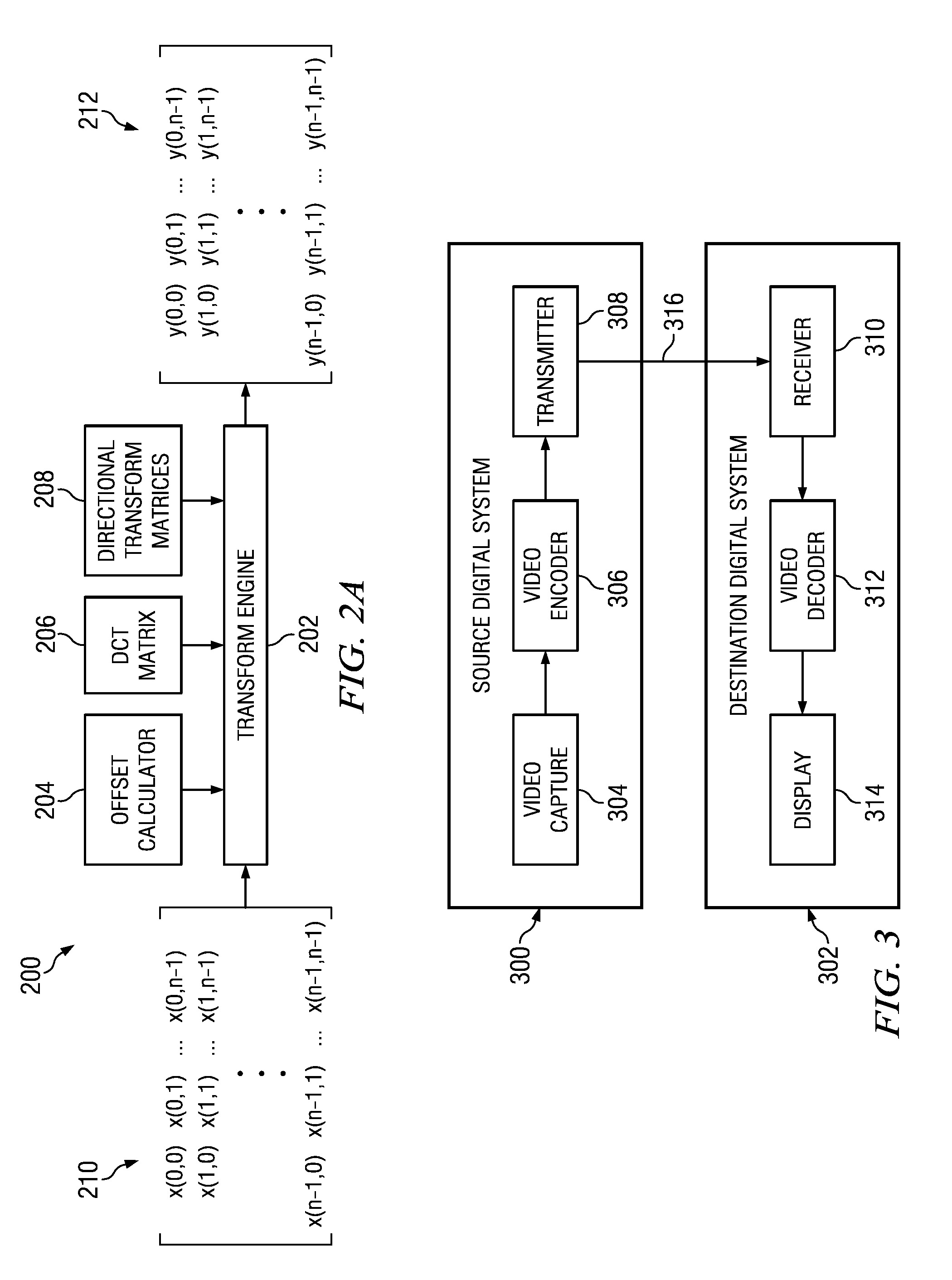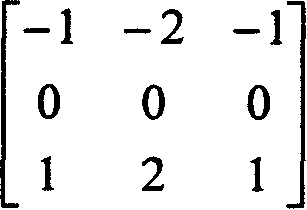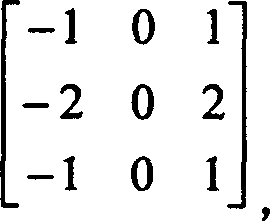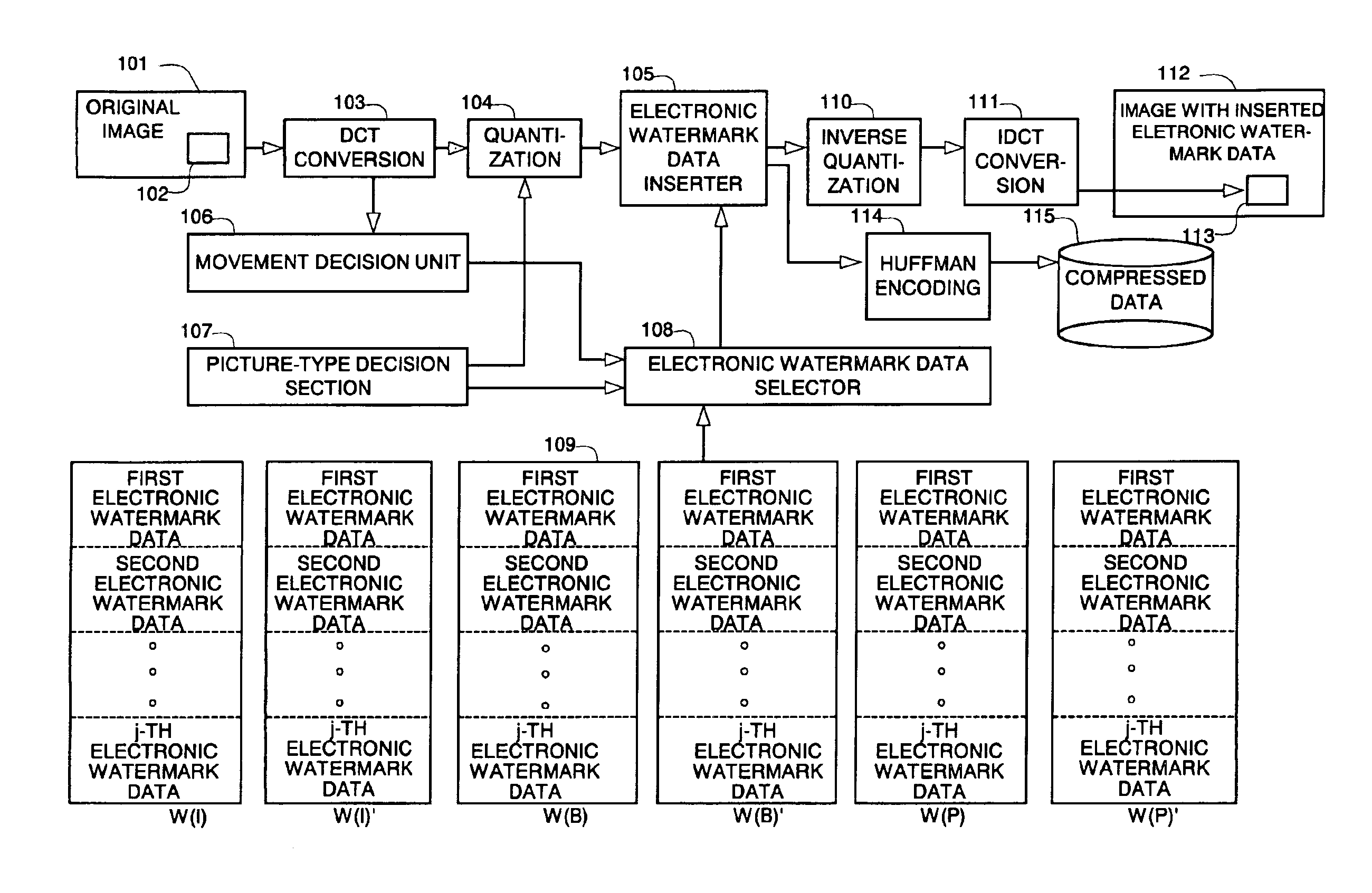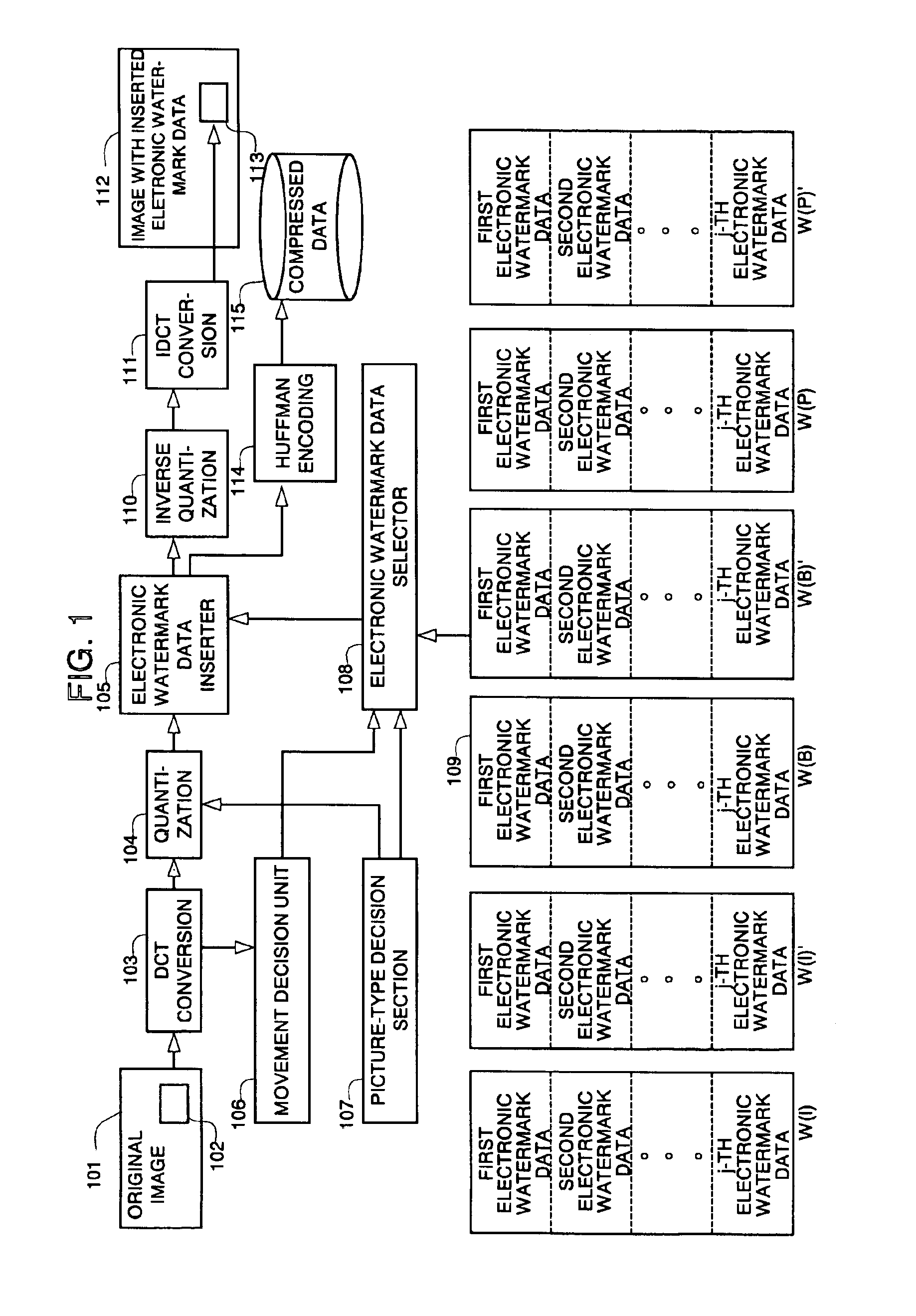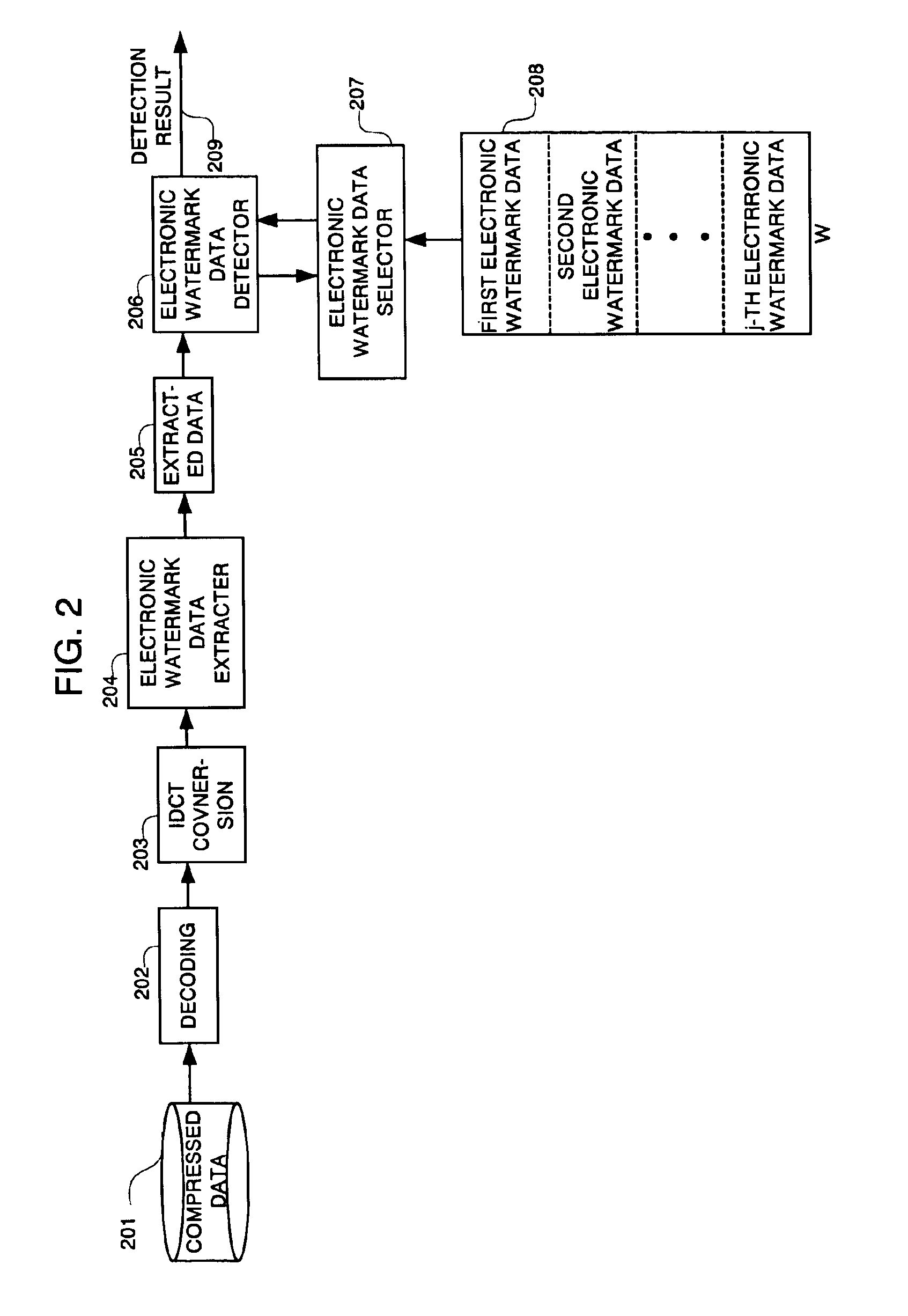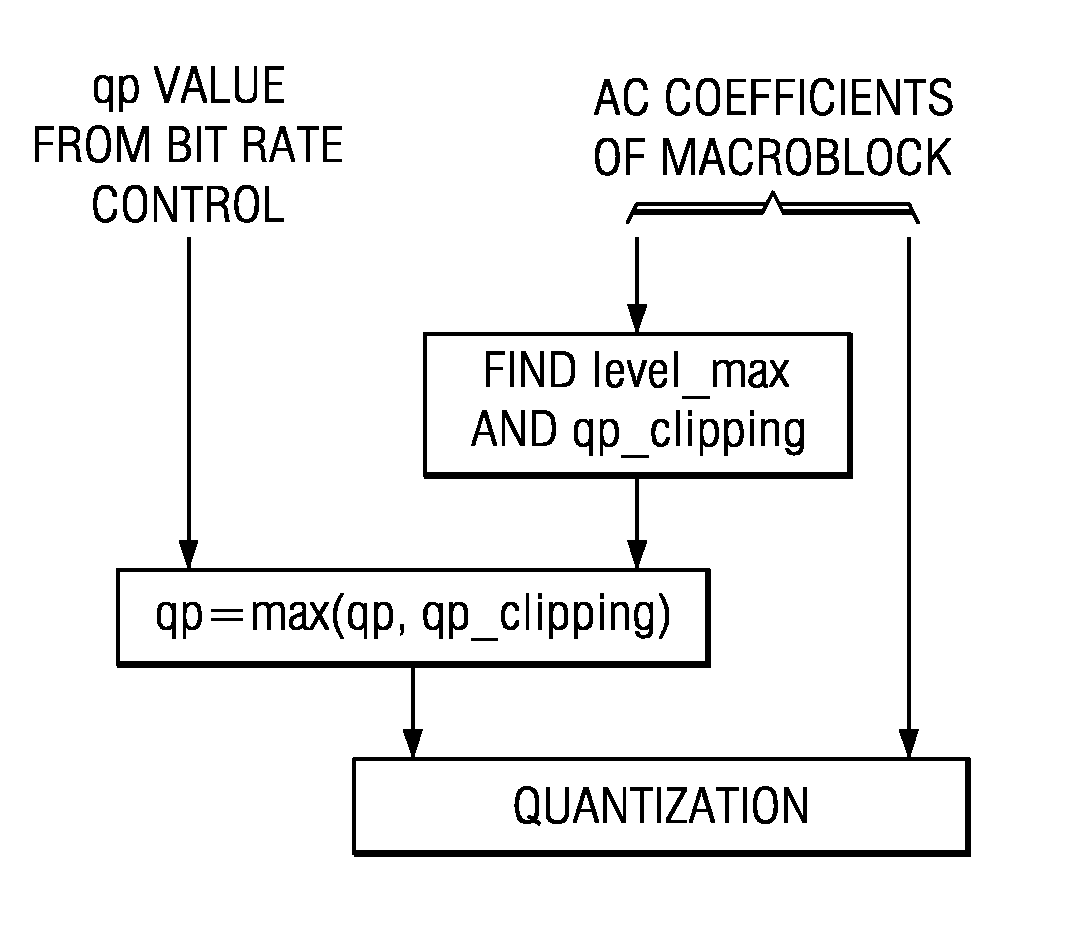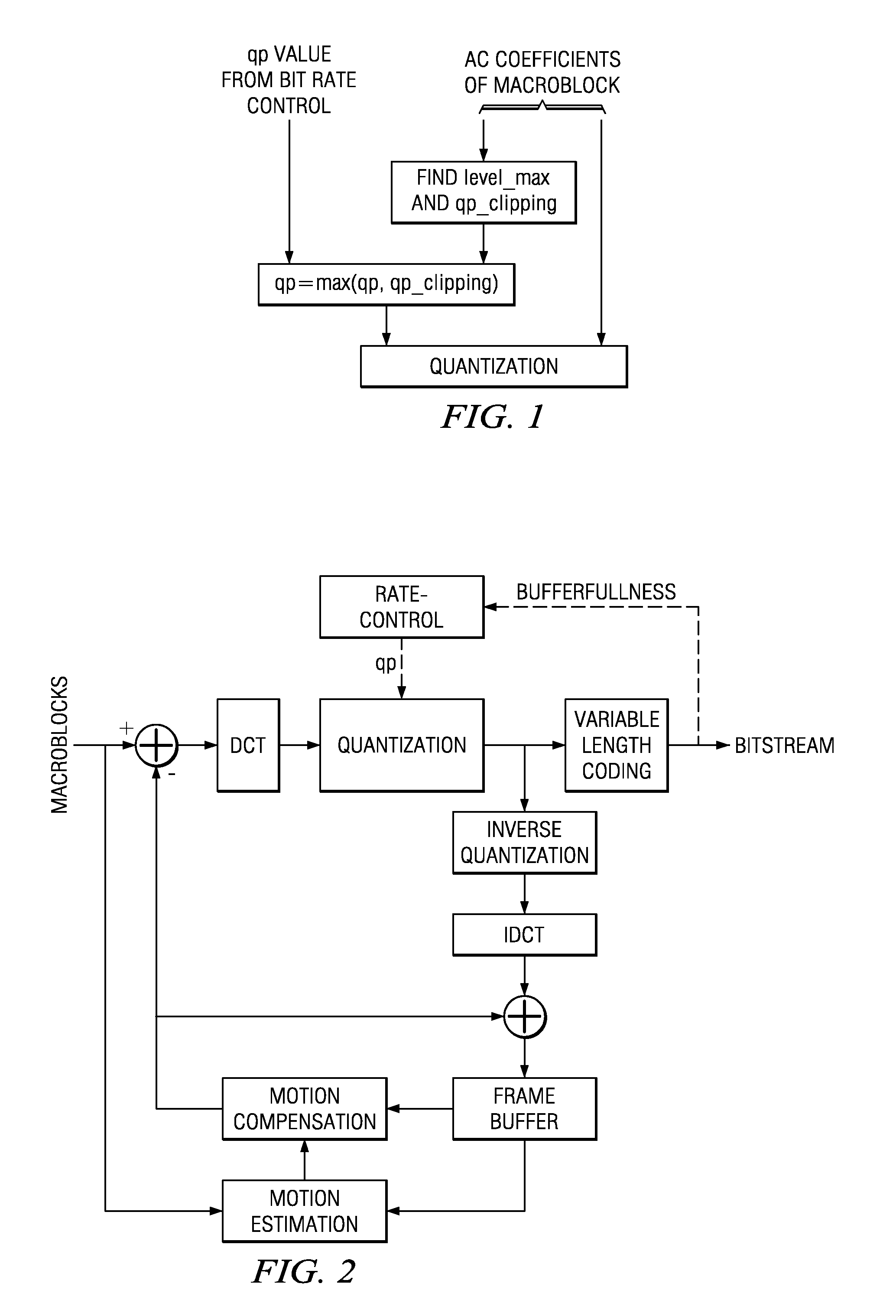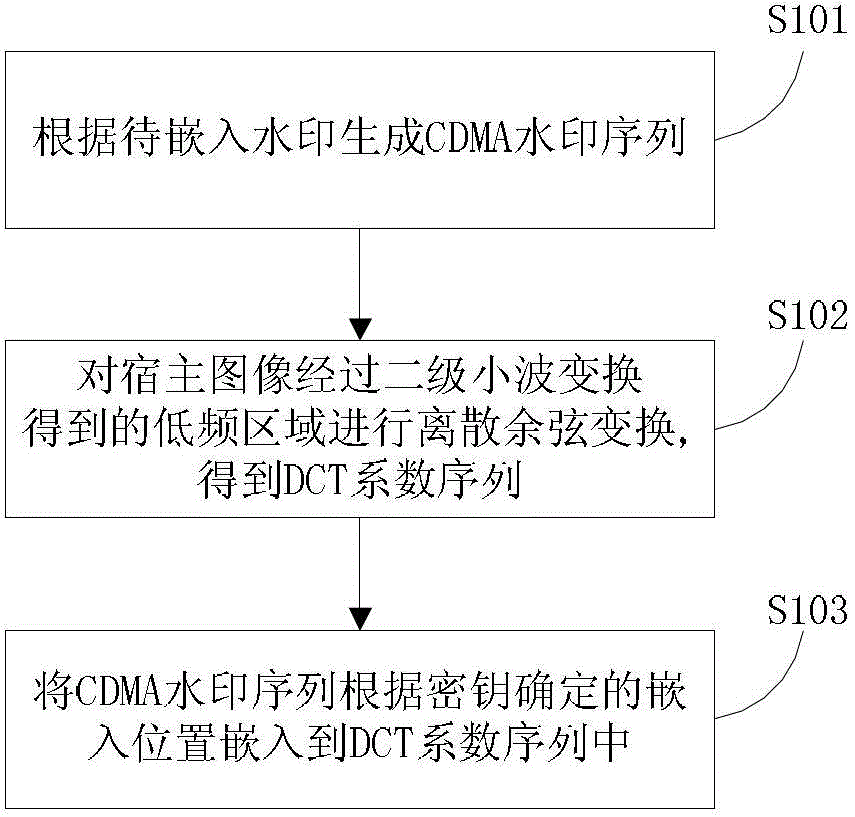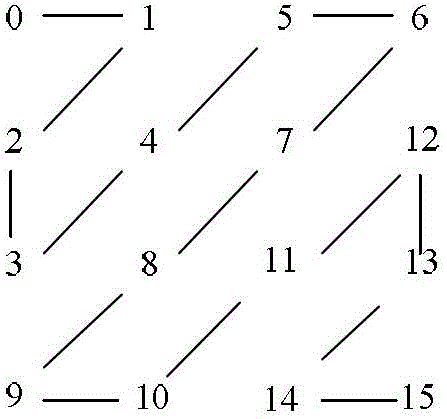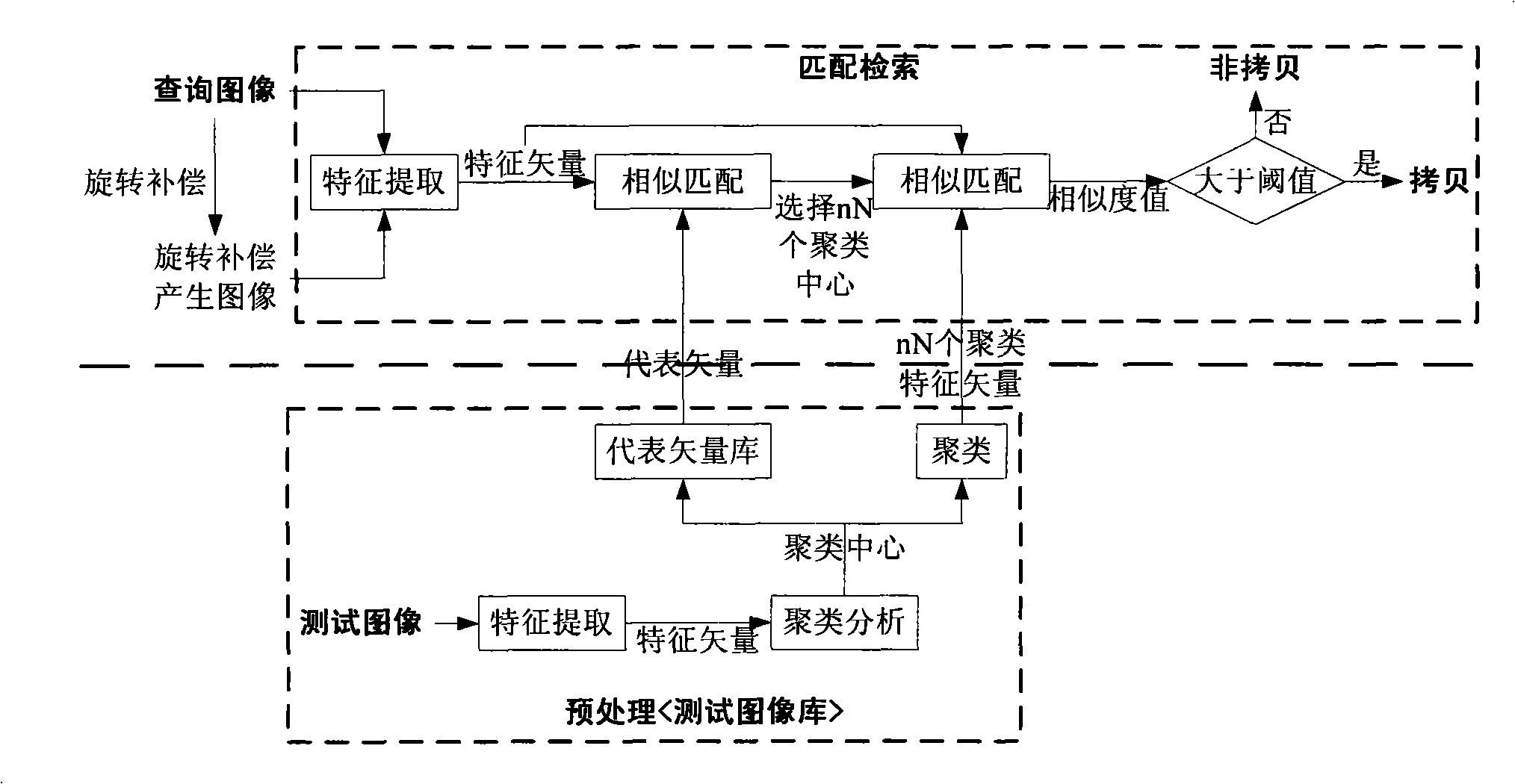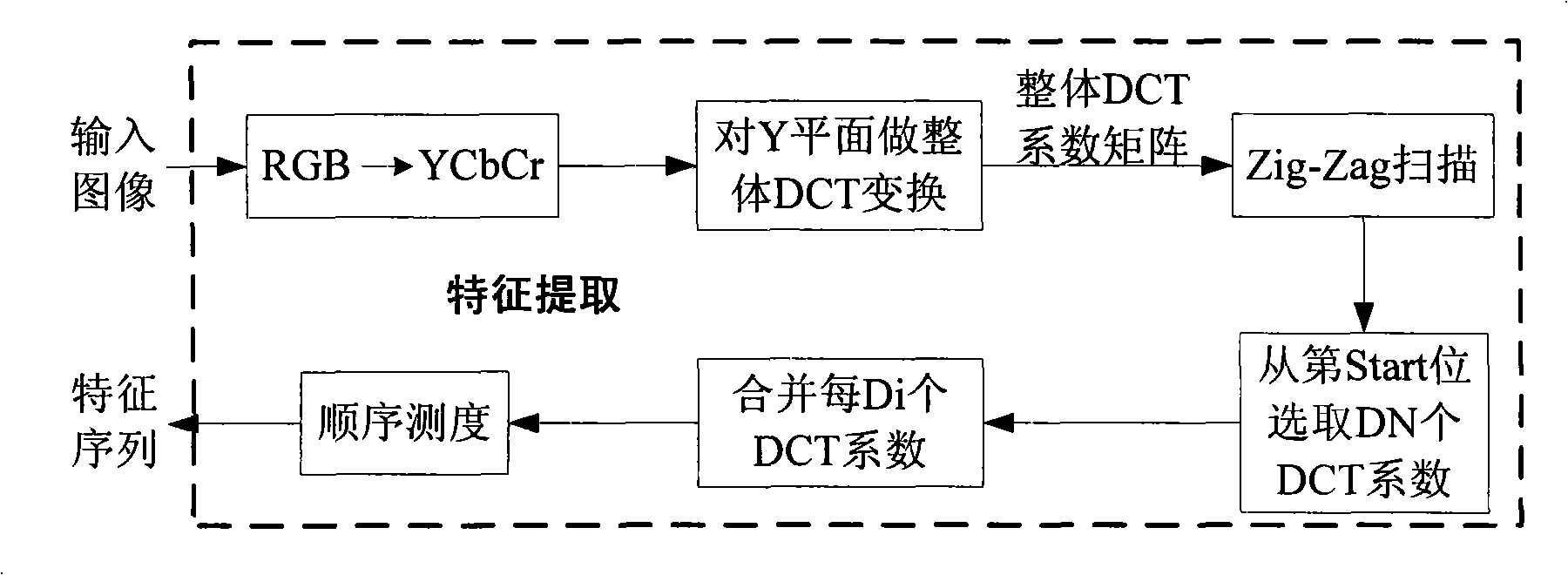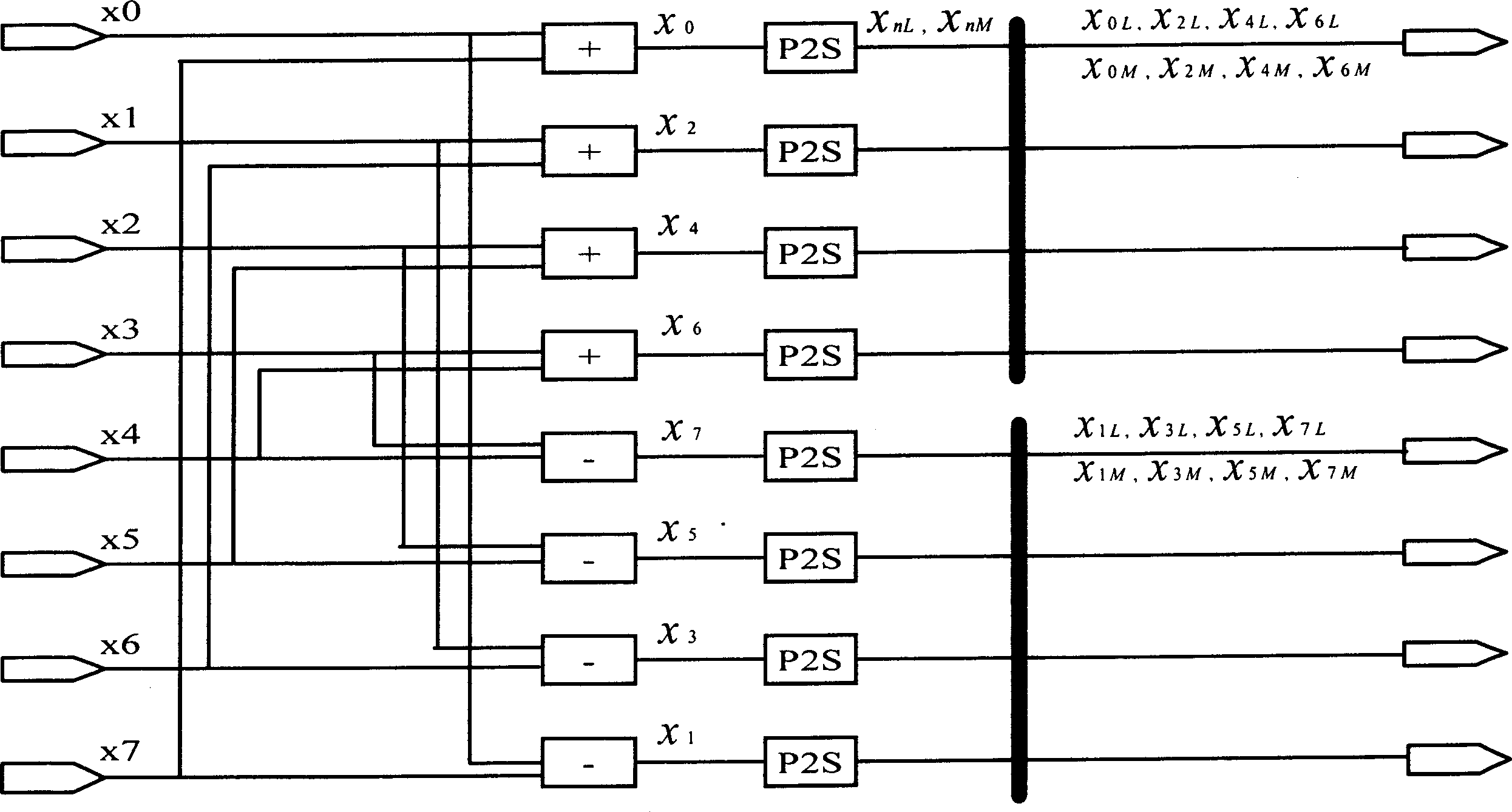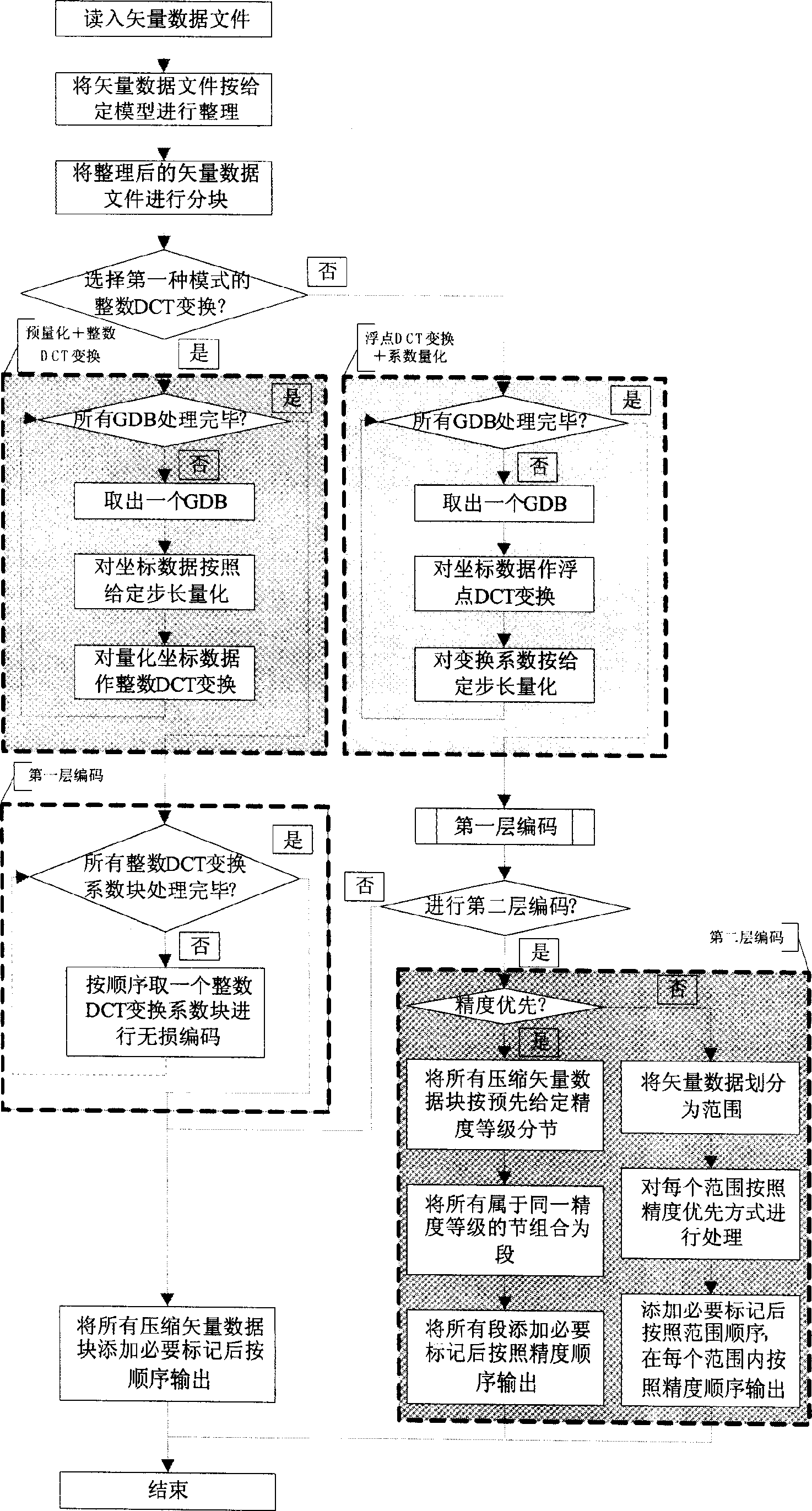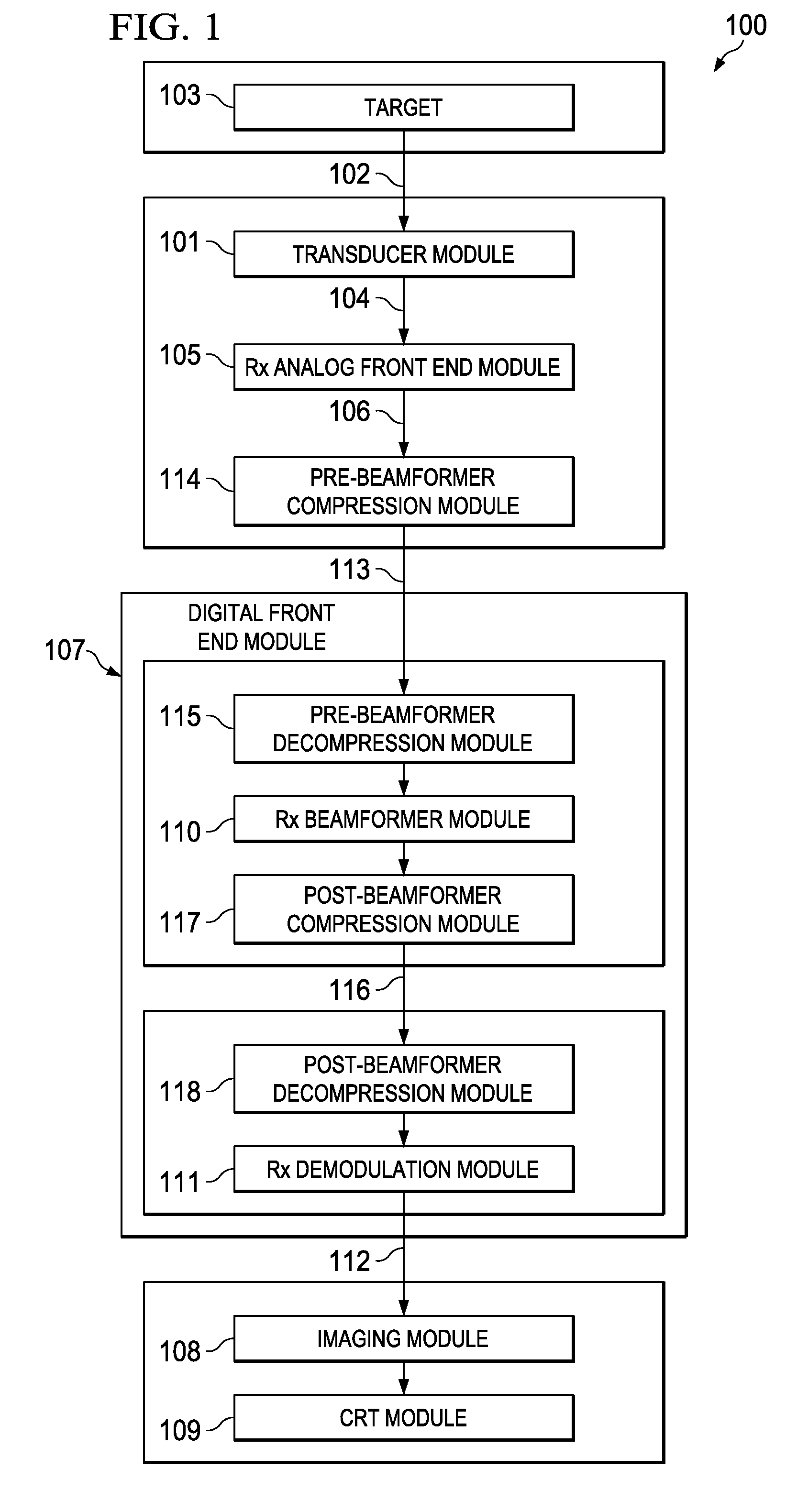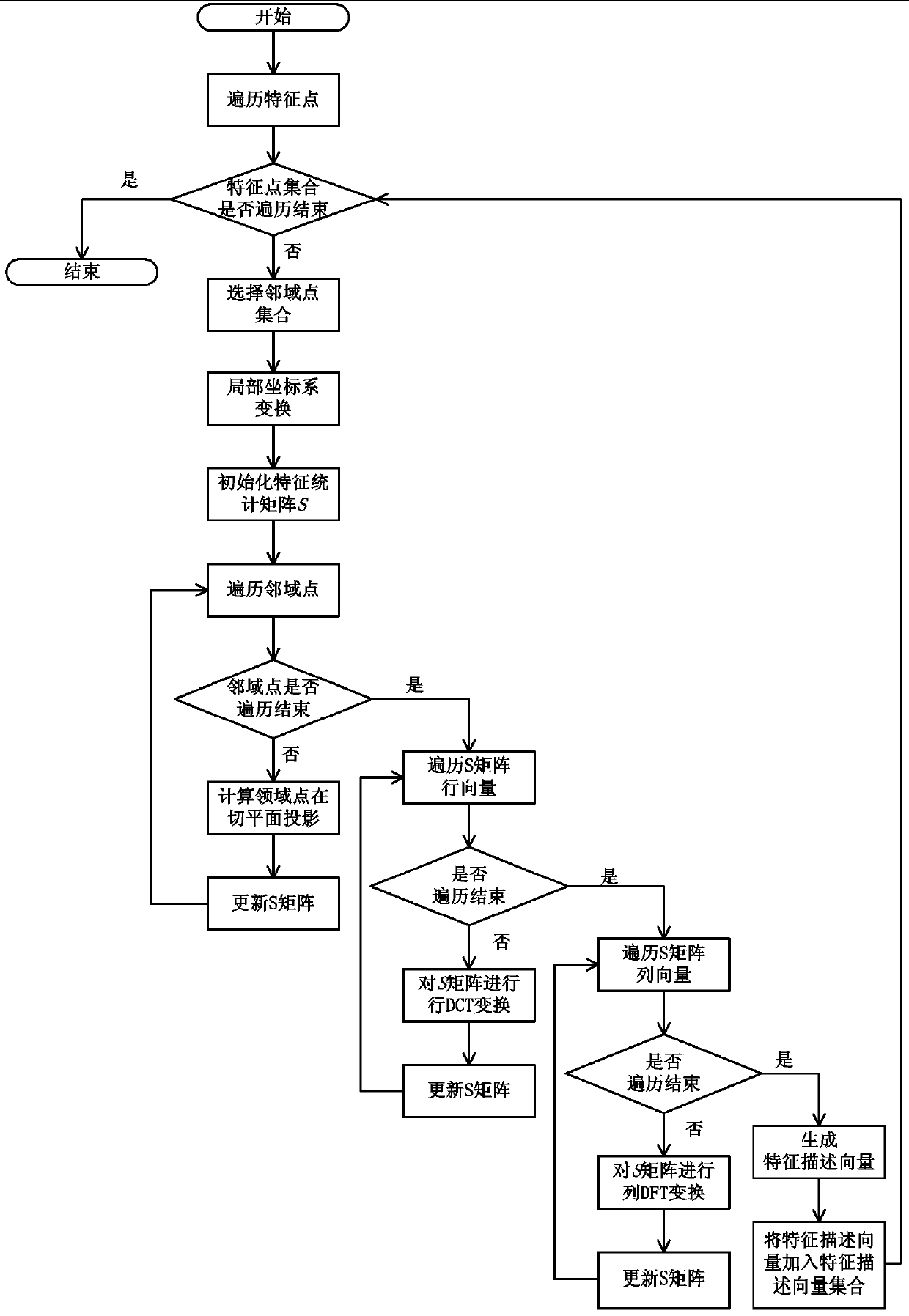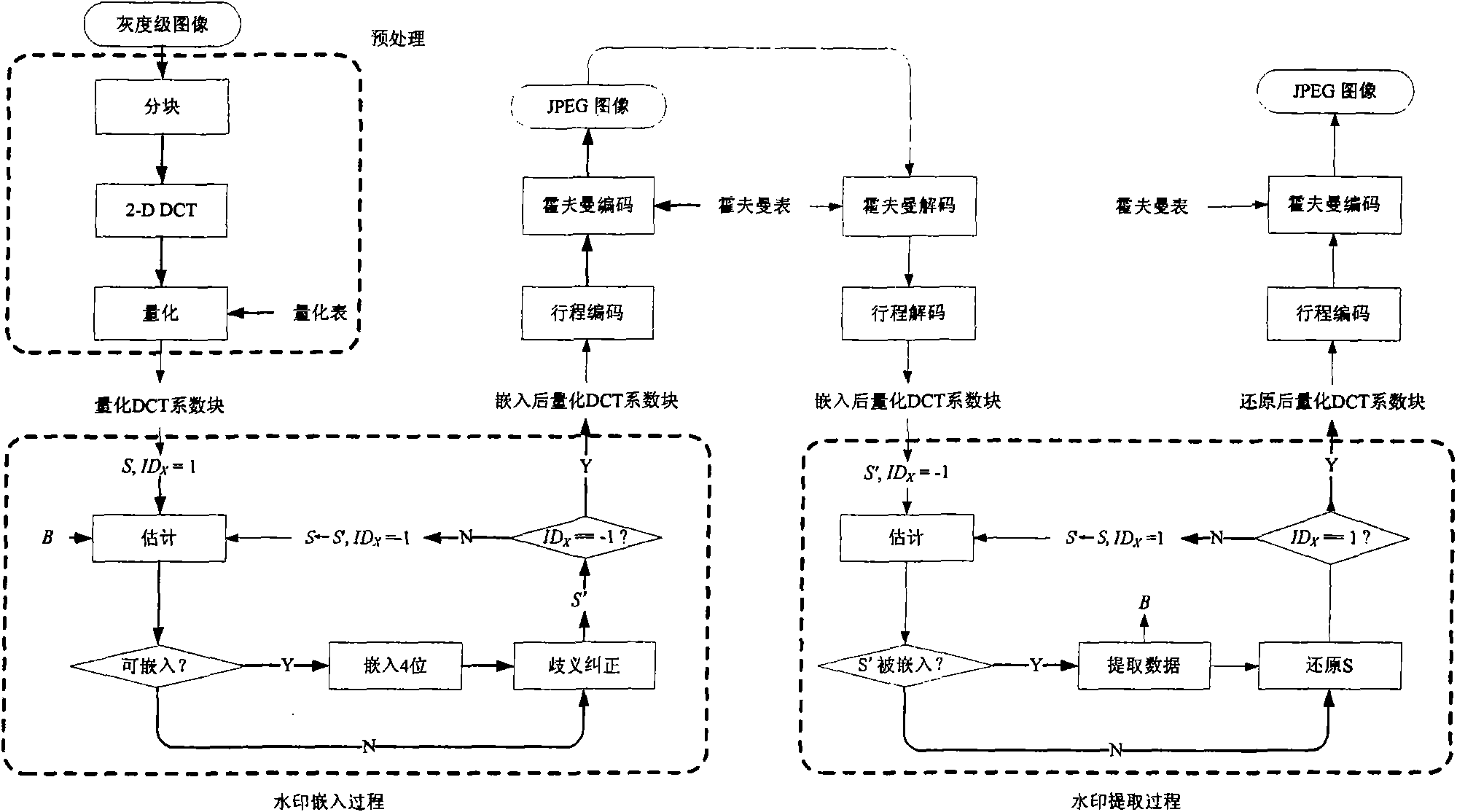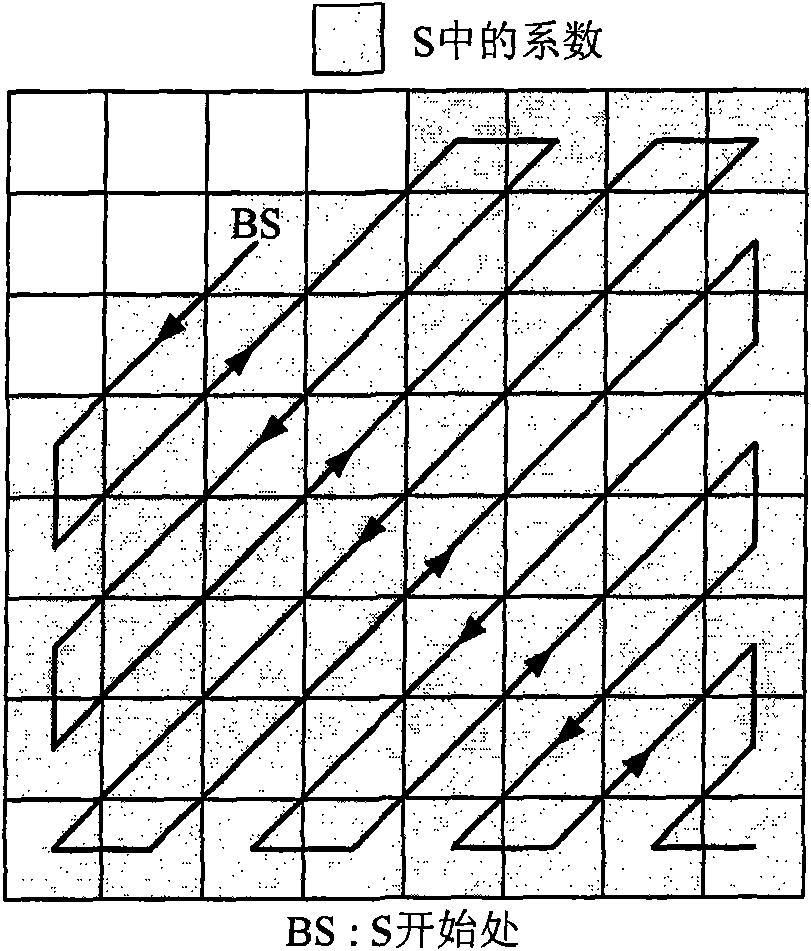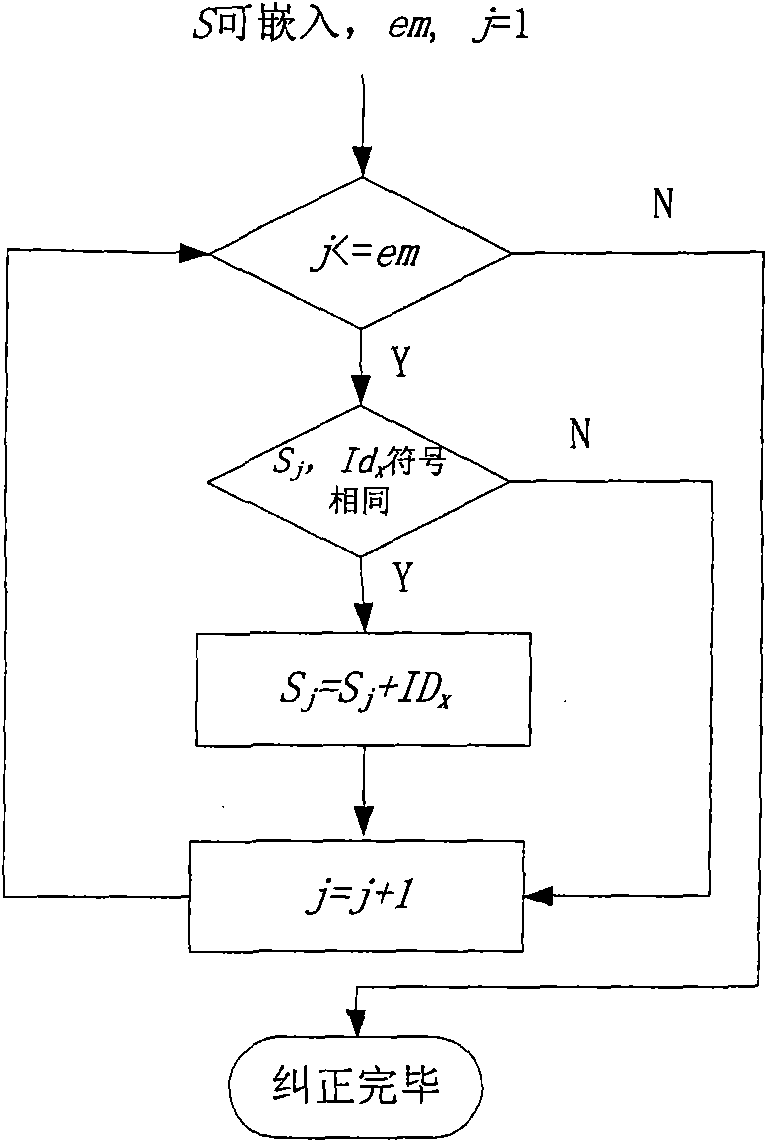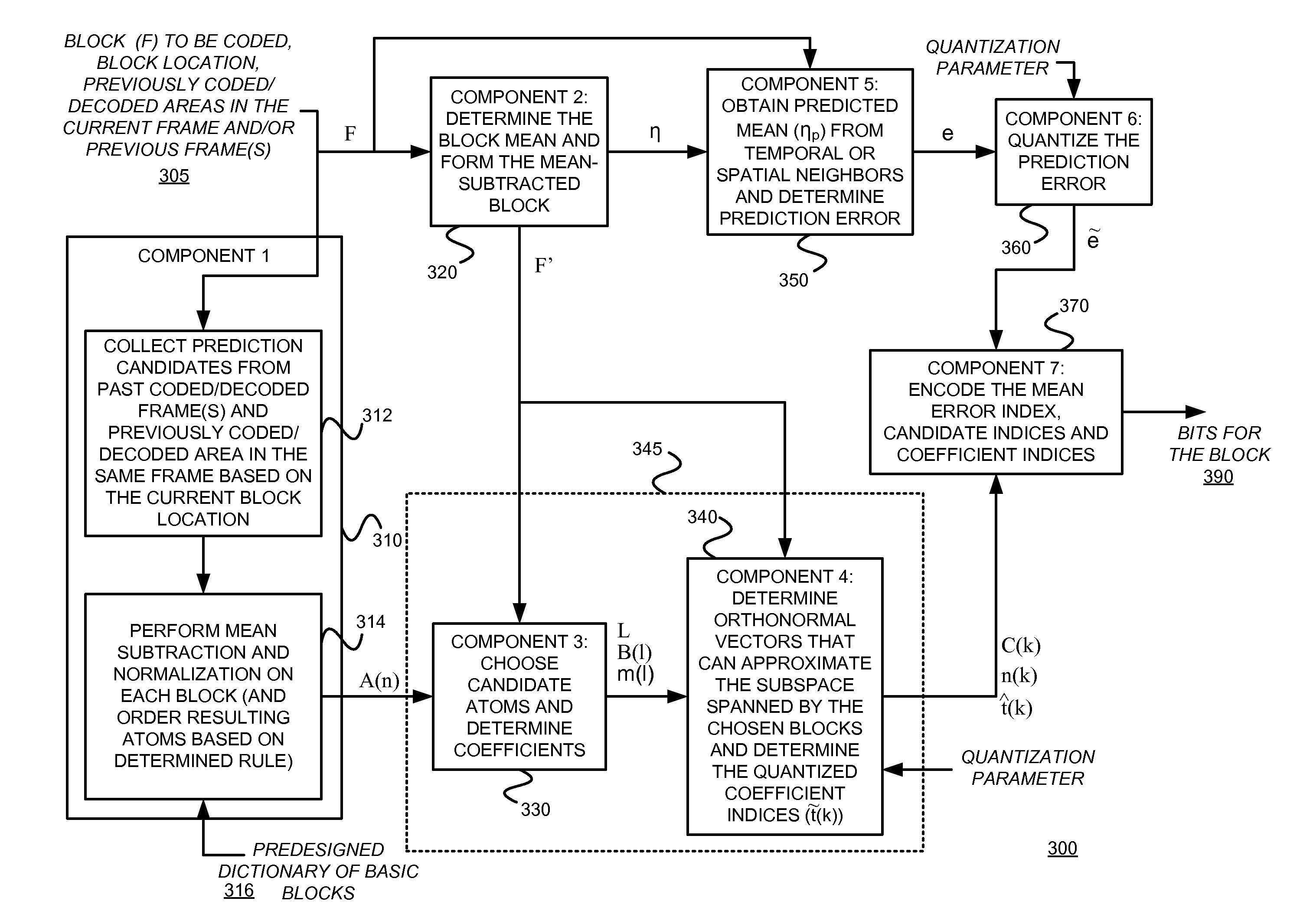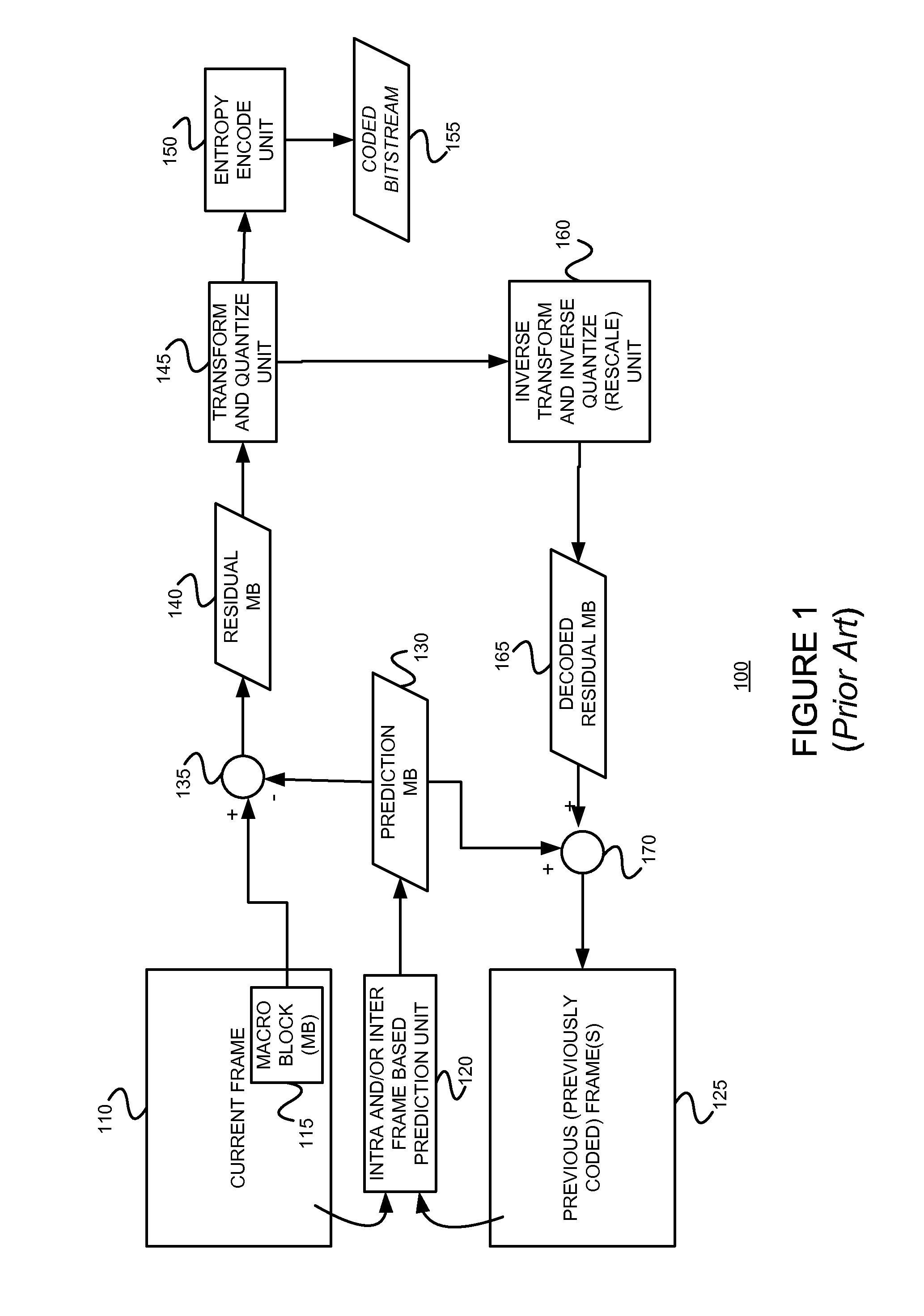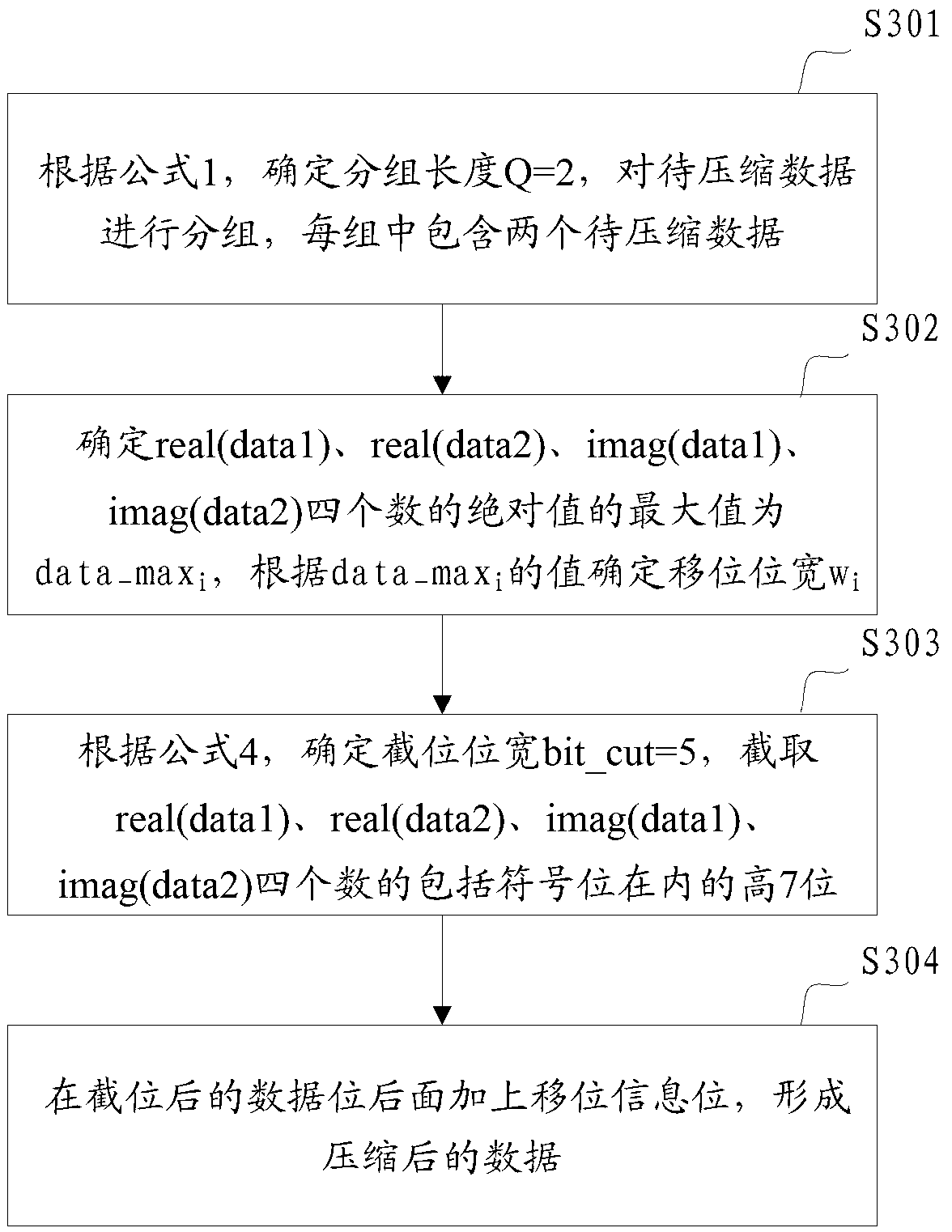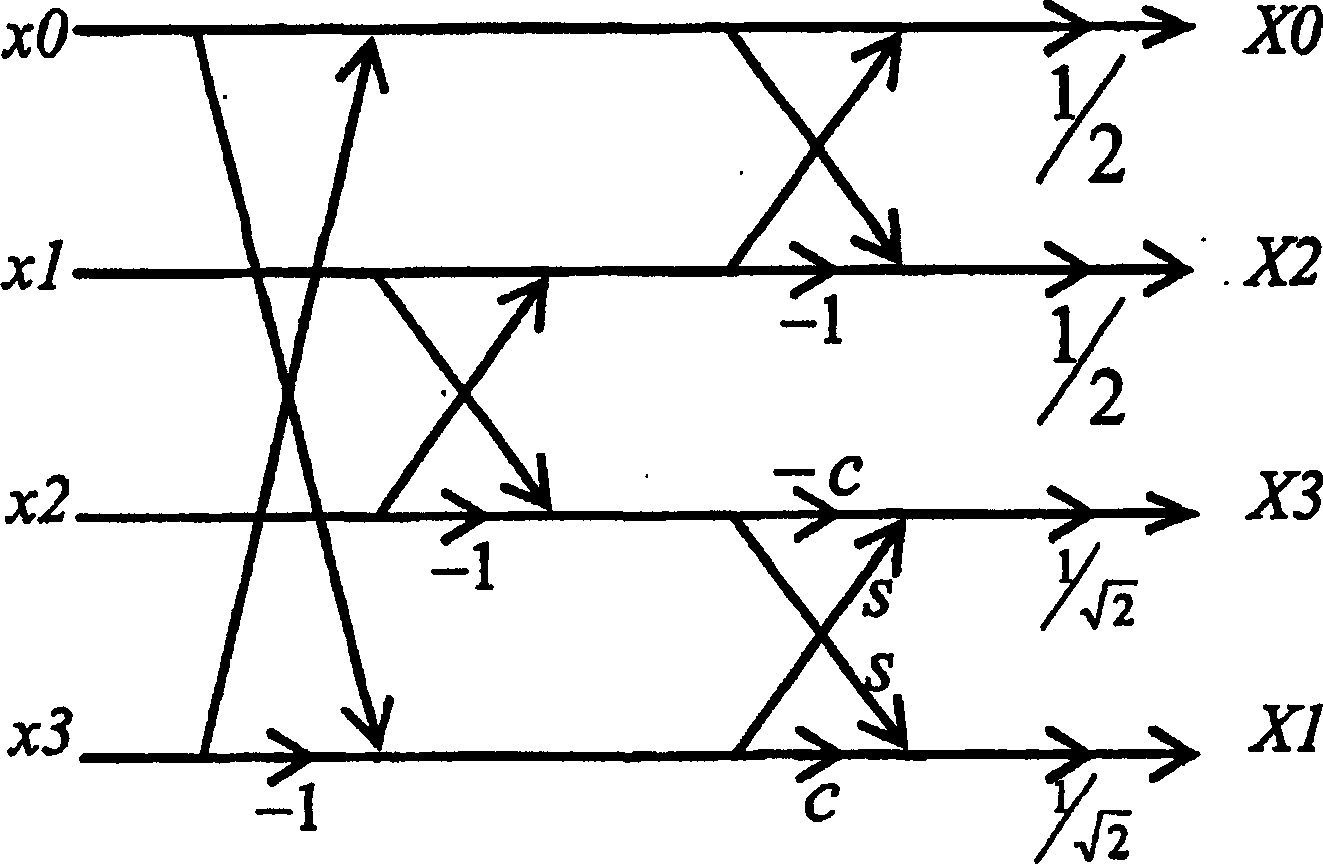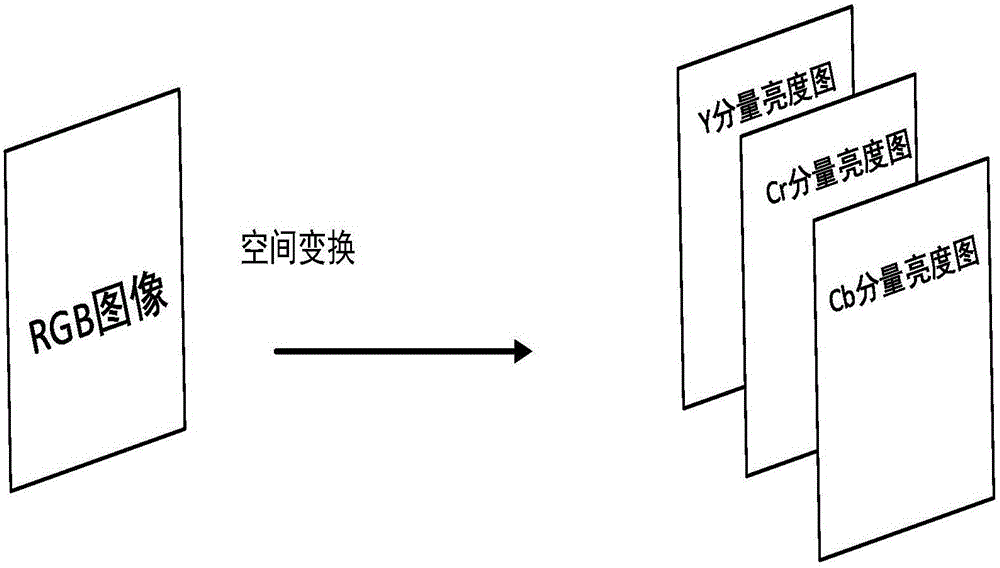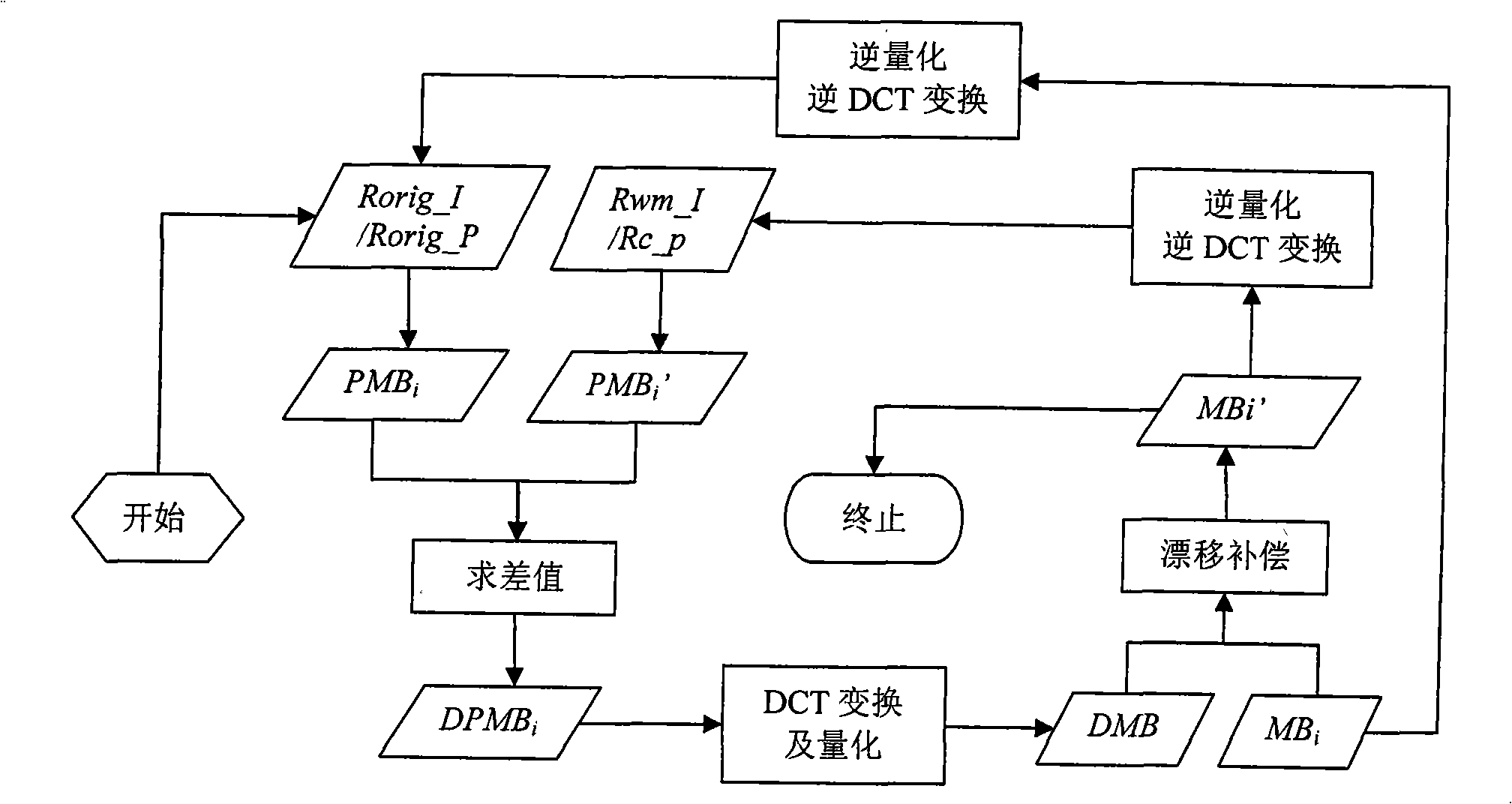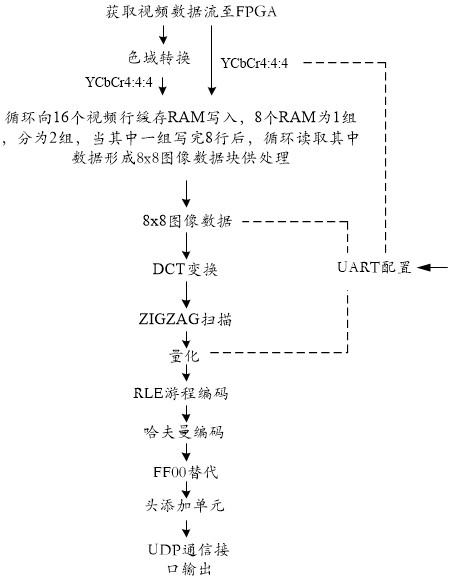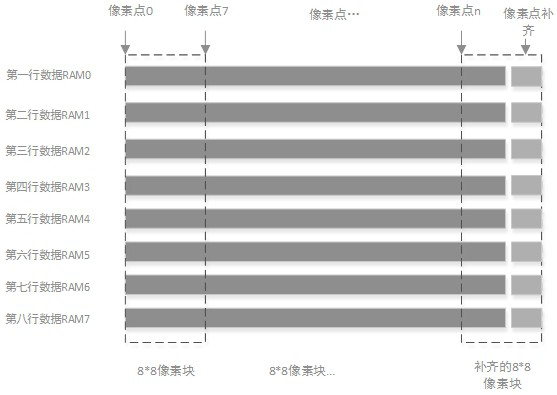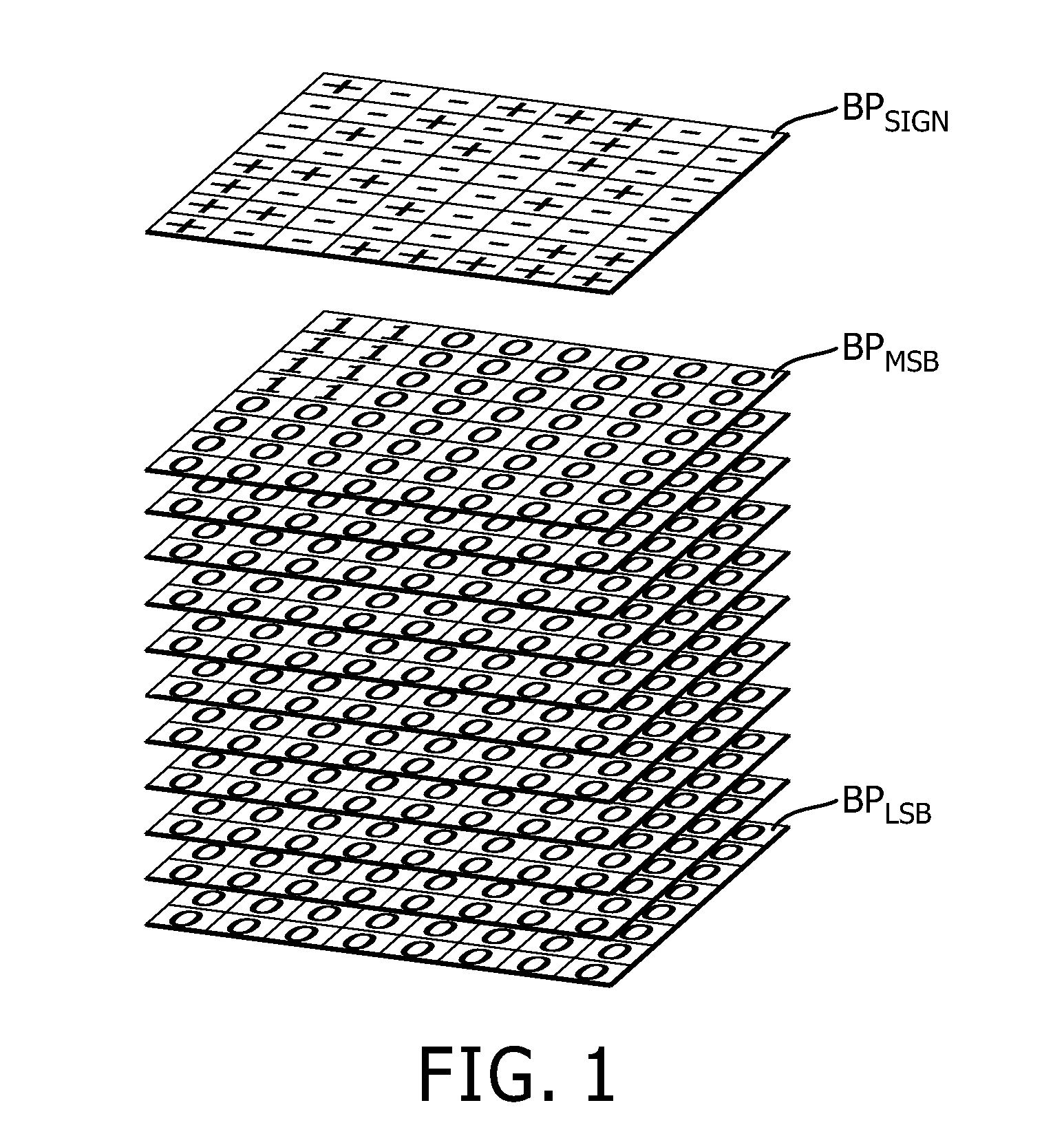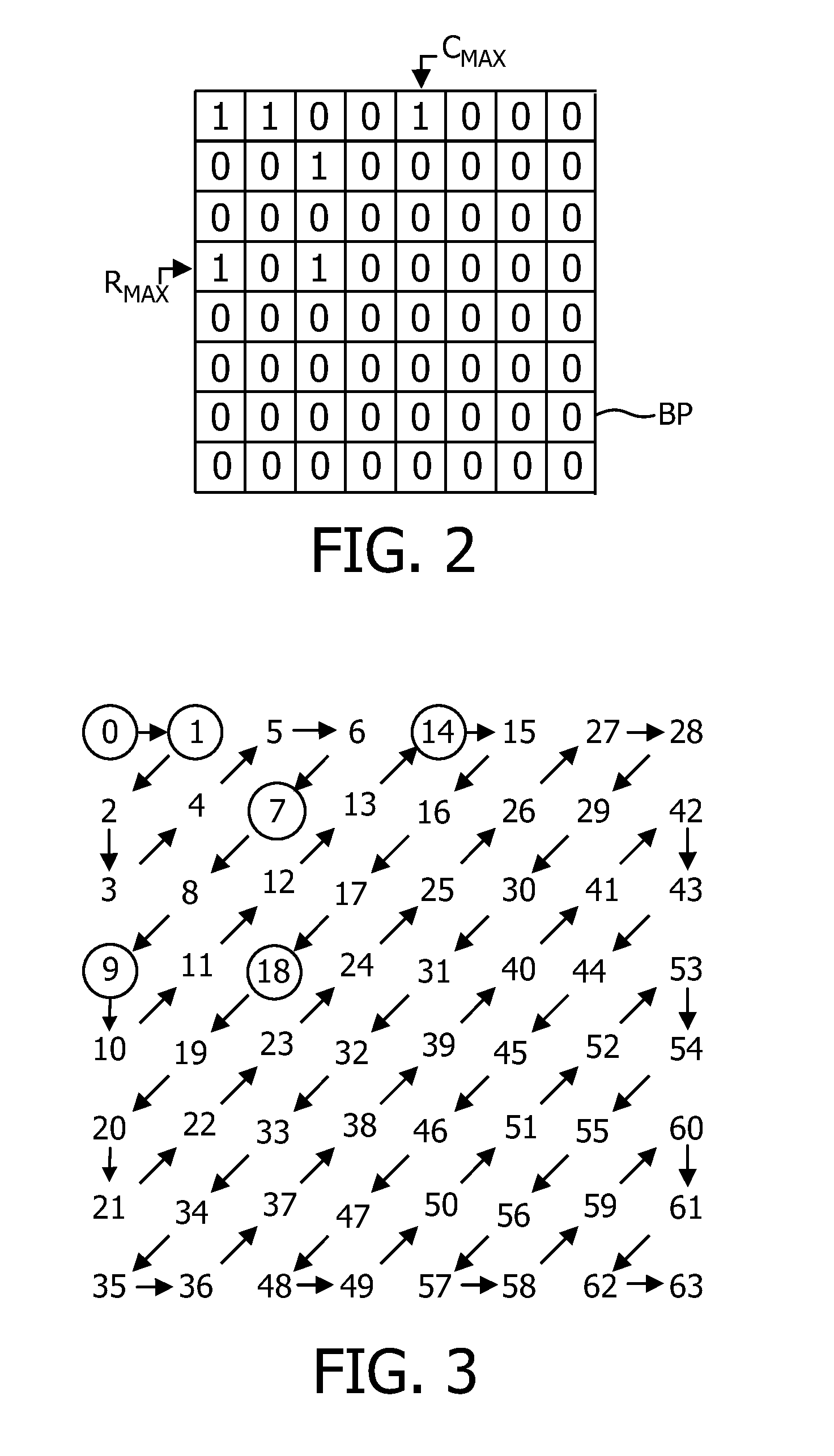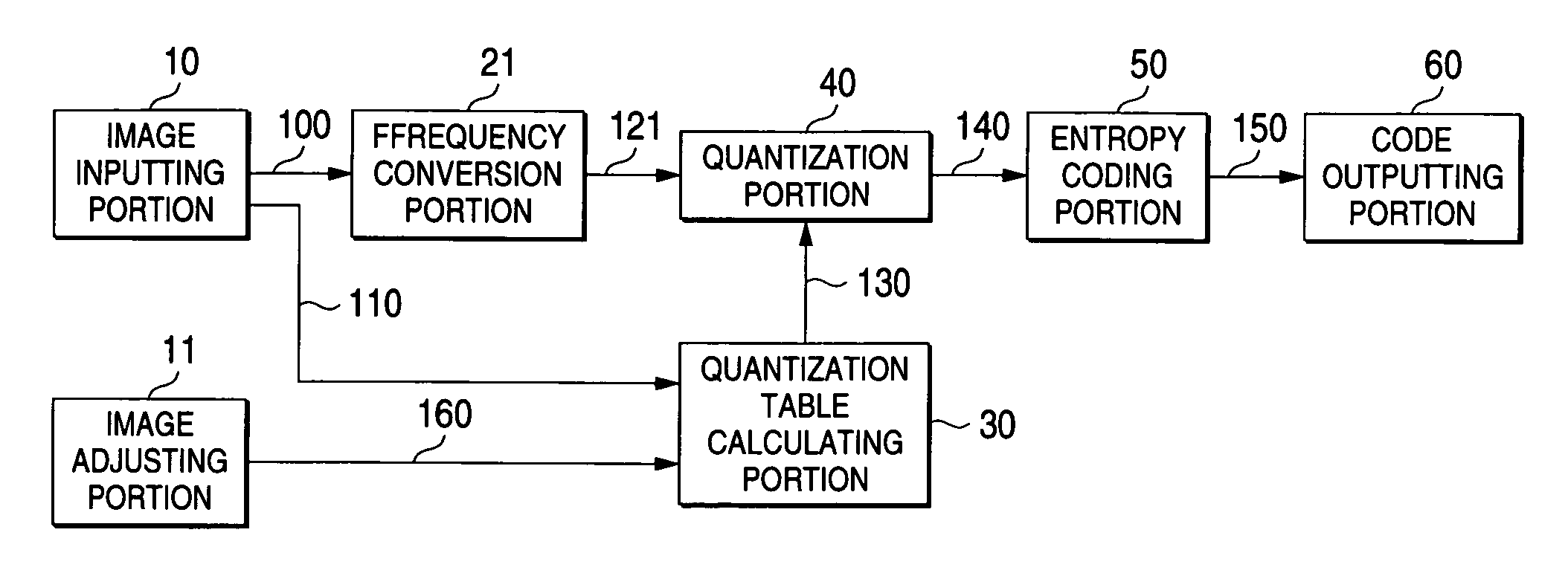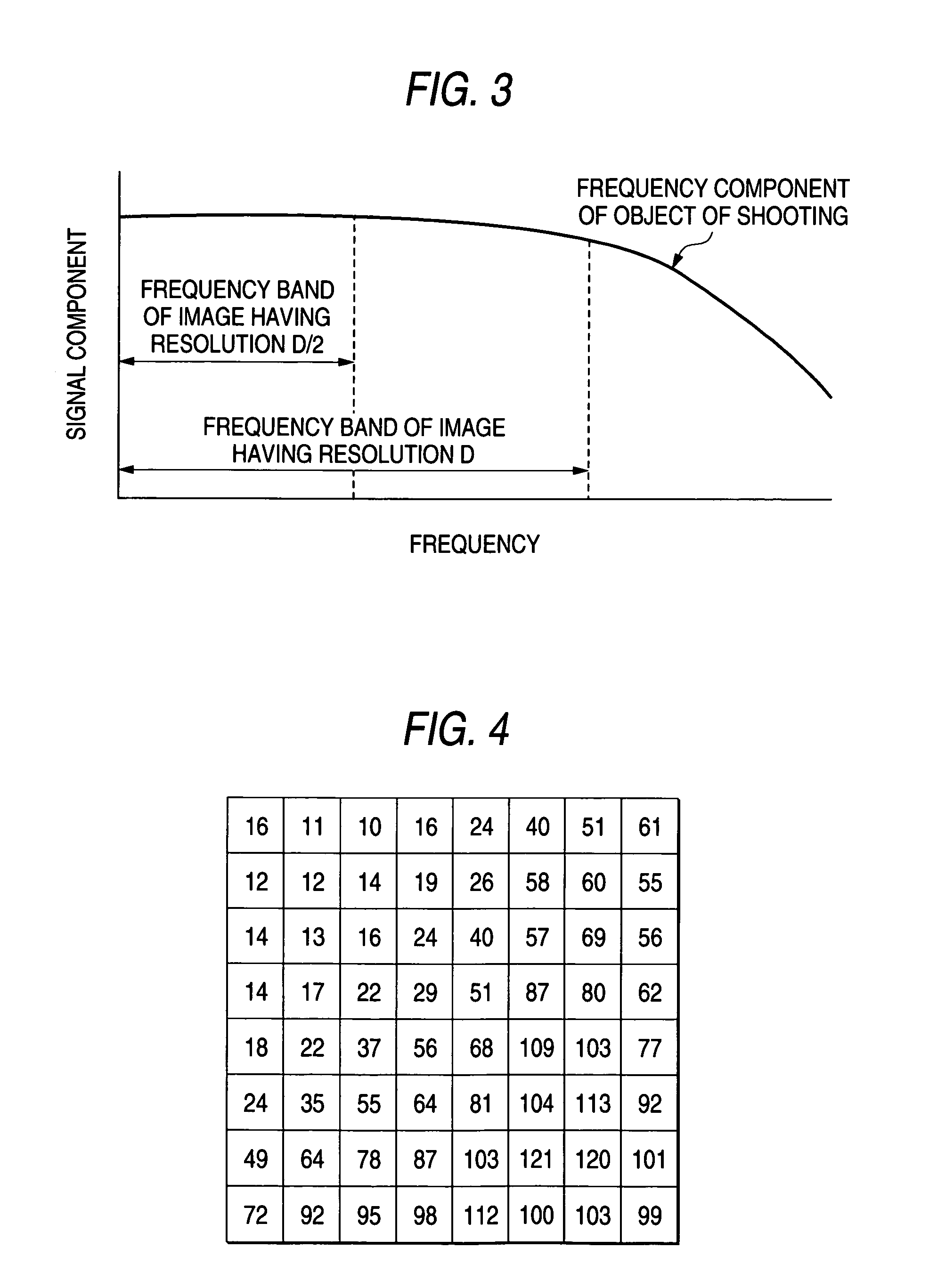Patents
Literature
Hiro is an intelligent assistant for R&D personnel, combined with Patent DNA, to facilitate innovative research.
138 results about "Dct transform" patented technology
Efficacy Topic
Property
Owner
Technical Advancement
Application Domain
Technology Topic
Technology Field Word
Patent Country/Region
Patent Type
Patent Status
Application Year
Inventor
Transform and Quantization Architecture for Video Coding and Decoding
ActiveUS20120082212A1Color television with pulse code modulationColor television with bandwidth reductionComputer graphics (images)Video encoding
A method of encoding a video stream in a video encoder is provided that includes computing an offset into a transform matrix based on a transform block size, wherein a size of the transform matrix is larger than the transform block size, and wherein the transform matrix is one selected from a group consisting of a DCT transform matrix and an IDCT transform matrix, and transforming a residual block to generate a DCT coefficient block, wherein the offset is used to select elements of rows and columns of a DCT submatrix of the transform block size from the transform matrix.
Owner:TEXAS INSTR INC
Video compression coding-decoding method
InactiveCN1658673ALess importantRaise the importanceTelevision systemsDigital video signal modificationMotion vectorVideo encoding
A compressing encoding and decoding method which includes the following: encode the video compressed signals with the programs, discrete cosine transform DCT; transform and quantitate; set the channel buffer storage before the encoding bit flow gets into the channel; the buffer storage must have a control mechanism; movement estimate; the position excursion is described by the movement vector, and a movement vector represents the displacement in the two actinic and vertical directions; as movement estimating, the P frame image uses the former most recent decoded I frame or P frame as the referenced image called the forward forecast; the movement compensation; the movement vector calculated by the movement estimate moves the macro piece in the referenced image to the corresponding position in the actinic and vertical direction, then namely produce the forecast to the compressed image; and search and calculate the subpels; the quantitation, storage and movement search after the sampling signals are made the discrete cosine transform DCT transform are all completed in the frequency field. The video encoder finishes all the calculation in the frequency field. The compressed rate is high, and the calculating quantity is small.
Owner:NANJING UNIV
Video watermarking
ActiveUS20100046606A1Picture reproducers using cathode ray tubesUser identity/authority verificationTemporal changeSoftware update
A method of watermarking a video signal includes encoding the video signal using at least one encoding parameter that is time-varied according to a watermarking pattern. The parameter affects information lost while encoding the signal. The parameter may be a quantization factor corresponding to a particular coefficient of an encoding transform. The parameter may be an element of a quantization matrix corresponding to a particular coefficient in a block DCT transform. The method may be implemented in devices with limited processing resources by means of a software update. The method enables the devices to imprint an encoded signal with a robust watermark, which may survive subsequent decompression and recompression. Alternatively, a video signal may be watermarked by modifying a magnitude of a non-dc spatial frequency component in a manner which varies with time according to a watermarking pattern. Corresponding watermark detection methods and watermarking devices also are disclosed.
Owner:NAGRAVISION SA
System and apparatus for inserting electronic watermark data
InactiveUS6915000B1Solve the low detection efficiencyAppropriate strengthTelevision system detailsPulse modulation television signal transmissionDct transformComputer science
The DCT converter 103 extracts block data 102 of a 8×8 pixel size from the original image 101 and then subjects it to DCT conversion. The quantizer 104 quantizes the DCT coefficient. The movement decision unit 106 obtains the difference between the number V(t) of DCT coefficients obtained by the DCT converter 103 and the number V(t−1) of DCT coefficients of the previous frame previously held. The movement decision unit 106 decides the movement as a large value if the difference exceeds a certain threshold value and decides the movement as a small value if the difference is less than the threshold value. The electronic watermark data inserter 105 extracts electronic watermark data W(j) which matches the location where 8×8 block data is extracted from the electronic watermark data table 109, the picture type and the movement and then inserts it into the data after quantization output from the quantizer 104.
Owner:NEC PERSONAL COMPUTERS LTD
Transcoder and transcoding method operating in a transform domain for video coding schemes possessing different transform kernels
InactiveUS20070071096A1Reduce computing costReduce computational complexityColor television with pulse code modulationColor television with bandwidth reductionDigital videoVideo encoding
Owner:AVISONIC TECH
Video coding quantization
ActiveUS7778813B2Reduce blockinessColor television with pulse code modulationColor television with bandwidth reductionAc coefficientVideo encoding
Modify H.263-type quantization with an adaptive quantization parameter floor; this limits clipping of quantized DCT coefficients and consequent artifacts. The maximum absolute level of AC coefficients of a DCT transformed macroblock provides a minimum quantization parameter from integer division by 256 when the quantized levels are clipped to a range such as −127 to +127.
Owner:TEXAS INSTR INC
Method and device for embedding and extracting digital watermarking
ActiveCN102750660ANo lossImprove robustnessImage data processing detailsPattern recognitionLab color space
The invention discloses a method and device for embedding and extracting digital watermarking. The method comprises the steps of: conducting discrete cosine transform (DCT) to a low-frequency area obtained by generating a CDMA (Code Division Multiple Access) watermarking sequence and carrying out discrete wavelet transform (DWT) to a host image; embedding the CDMA watermarking sequence into a medium-high frequency DCT coefficient sequence determined by a secret key. No color loss can be ensured in color mode translation by embedding watermarking in the LAB color space of the image, the robustness and invisibility of the watermarking can be improved by adding watermarking onto the DWT and DCT transformed coefficient of the image, and the capacity of the watermarking can be increased through the CDMA coding technique.
Owner:京北方信息技术股份有限公司
Transcoder and transcoding method operating in a transform domain for video coding schemes possessing different transform kernels
InactiveUS7782955B2Reduce complexityTranscoding architecture is simplifiedColor television with pulse code modulationColor television with bandwidth reductionDigital videoComputer graphics (images)
A transcoder for converting a digital video signal from a first format into a second format in transform domain. The first format and the second format are respectively adopted by video coding schemes possessing different DCT transform kernels. The transcoder includes: a transform-domain decoder, coupled to the digital video signal, for decoding the digital video signal of the first format to generate a first DCT-domain signal, the first DCT-domain signal corresponding to a first DCT transform of the first format in the transform domain; a transform kernel converter, coupled to the transform-domain decoder, for converting the first DCT-domain signal into a second DCT-domain signal, the second DCT-domain signal corresponding to a second DCT transform of the second format in the transform domain; and a transform-domain encoder, coupled to the transform kernel converter, for generating a resultant video signal encoded in the second format according to the second DCT domain signal.
Owner:AVISONIC TECH
Robust image copy detection method base on content
InactiveCN101308567AImprove robustnessImprove query efficiencyImage data processing detailsSpecial data processing applicationsFeature vectorDct transform
The invention discloses a content-based robust image copy detection method, which has the following steps: to extract the feature vector of the testing image; to select the integral DCT transform coefficients of a plane Y of the original image YCbCr color space, to calculate the order measurement of the coefficients to obtain a coefficient sequence which is used as the feature vector of the testing image; then to establish testing image representative vector libraries; to execute clustering analysis to the feature vector sets of the testing image representative vector libraries to select the feature vectors closest to the clustering center as the clustering representatives to constitute a clustering representative vector library; to respectively search the matched testing image representative vector libraries to inquire the image feature vectors and the image feature vectors after rotation compensation, and to determine the belonged class; then to execute sequential matching search to each image feature vector in the clustering, and to determine whether the copy of the inquired image exists. The invention shows a higher robustness to help improve the inquiring efficiency, and has practical value as well as wide application in digital image database arrangement, digital image copyright protection and piracy tracking.
Owner:HUAZHONG UNIV OF SCI & TECH
DCT rapid changing structure
InactiveCN1553707AReduce areaFast operationTelevision system detailsImage codingImage compressionDct transform
This invention provides a device for taking a two- dimensional fast DCT transform or a two -dimensional fast IDCT transform to the image data composed of 8X8 sub-block. Takes example for one dimensional DCT transform to 8X8 sub-block: the transform device comprises: the control circuit; the input deposit circuit; the butterfly operation circuit; the parallel / serial conversion circuit; table look up operation circuit; the output deposit circuit. The invention adopts the design philosophy that is to replace the multiply operation by look up table, so it need only once butterfly operation, 24 adder, 0 multiplying to complete once DCT. The design philosophy using the pipeline greatly increases the operating speed. The data can be inputted consecutively, the operation result can be gotten at each clock period. The invention is adapted to implement by using FPGA, the resource requirement saves above 30% than current structure. It can be applied in various image compression, especially in MPEG, H.26X format data that makes high requirement for the compression speed and quality.
Owner:杭州高特信息技术有限公司
Methof for embedding and extracting watermark based on statistical model of coefficient in transform domain of digital images
InactiveCN101004831AImplement embeddingImplement extractionImage data processing detailsComputer graphics (images)Dct transform
A method for embedding and picking up digital watermark based on digital image transform coefficient statistic model includes making desired value of image sub-block DCT transform be positive or be negative by changing distribution of alternating-current coefficient on image sub-block DCT transform, enabling to embed and to pick up digital watermark before and after printing and scanning as said property can be remained still after image is printed and scanned.
Owner:PEKING UNIV +2
Two-dimensional vector data compression method
InactiveCN1777038AGood effectControl reconstruction errorCode conversionData compressionSignal-to-quantization-noise ratio
The method divides original vector data into blocks of vector data. Next, loss compression based on DCT transform is carried out for the blocks of vector data according to one of two modes. Then, entropy coding is carried out for the obtained DCT transform so as to obtain compressed blocks of vector data. Finally, all compressed blocks of vector data are organized as binary bit steam in specific format. Main effects of the invention are: compression ratio near to 20 is reached for vector data formed natural in wide range such as contour line, road network and water system etc; SNR reaches to 60dB; and maximal absolute deformation is about 10-5 order of magnitude of dynamic range of original vector data. Features are: controllable distortion generated in reconstructing error and compression process; providing technical base for asymptotic transmission of vector data flexibly and in high efficiency by combining asymptotic compression technique in space domain and in frequency domain.
Owner:WUHAN UNIV
Post-Beamformer Ultrasound Compression
ActiveUS20110222791A1Improve performanceHigh decorrelationWave based measurement systemsCharacter and pattern recognitionHadamard transformSonification
Embodiments of the invention compress ultrasound RF data after the receiver beamformer. An efficient compression algorithm is disclosed that incorporates the use of the Discrete Cosine Transform (DCT) and the Discrete Wavelet Packet (DWP) transform, followed by quantization of the wavelet coefficients. The algorithm first processes ultrasound scanlines from the receiver beamformer using a DCT transform. In a low-power configuration, a Hadamard transform may be used instead of the DCT. The output of the DCT processing is DCT coefficients at different frequencies. An optimized wavelet packet transform is then used for each coefficient line. The wavelet filter kernels and the wavelet packet trees can be jointly optimization using a two-step optimization algorithm.
Owner:TEXAS INSTR INC
Method and apparatus for generating data representative of features of an image
InactiveUS7336842B2Great contributionCharacter and pattern recognitionImage codingPattern recognitionCredit card
Image data representative of features of a respective plurality images are transformed using a two dimension discrete cosine transform (DCT), and the DCT sign coefficients of the respective DCT transforms for the images are selectively used to generate a highly compressed and secure one-dimension binary data representation of a subject image whose image data has undergone a DCT transform. The binary data representation can be, for example, of a face image and is readily applicable to a passport, a credit card, a driver's license, an ID card, and the like, for use in rapid, secure face authentication.
Owner:AFFILIATED COMPUTER SERVICES
Signal processing system, signal processing apparatus and method, recording medium, and program
InactiveUS20050073986A1Restore accuratelyTelevision system detailsGain controlFrequency spectrumSignal on
The present invention relates to a signal processing system, a signal processing apparatus and method, a recording medium, and a program in which high frequency components of a narrow-range signal having suppressed high frequency components can be restored with high accuracy. A narrow-range audio signal having low frequency components is divided into frames by a frame-unit dividing unit 11, and is spectral-transformed into a signal on a frequency domain by a DCT transform unit 12. A learning-produced-data table 14 extracts, at an address corresponding to a class code supplied from a classifying unit 13, high-frequency-component DCT spectrum data. In a spectrum combining unit 16, the extracted high-frequency-component DCT spectrum data is combined with low-frequency-component DCT spectrum data output from the DCT transform unit 12. Subsequently, a broad-range audio signal having combined high frequency components and low frequency components is output. The present invention can be applied to cellular phones.
Owner:SONY CORP
Detection method of an unstructured point cloud feature point and extraction method thereof
ActiveCN103745459AImprove robustnessImprove detection efficiencyImage analysisCharacter and pattern recognitionPattern recognitionPoint cloud
The present invention provides a detection method of an unstructured point cloud feature point and an extraction method thereof. The extraction method includes (1) calculating the Harris response value of a sampling point in different scale space; (2) selecting the Harris response value of the optimal scale space as the Harris response value of the sampling point to obtain a feature point set Q; (3) selecting one maximum point of the Harris response values possessing maximality in both of the scale space neighborhood and a geometric neighborhood as a candidate feature point, at last, selecting the optimizing strategy to draw the final feature point. A tangent plane of the gained feature point is subjected to network segmentation under a polar coordinate system, and then a neighborhood point of the feature point is projected to the tangent plane, a feature information statistical matrix is generated by voting projected length corresponding to projective points from each grid to four peaks of the grid, then both of a row vector and a column vector are respectively subjected to the DCT transform and the DFT transform, the elements of the upper left corner after transform is a character description vector.
Owner:深圳了然视觉科技有限公司
System and method for recompressing a jpeg image using requantization
A system and method for recompressing a JPEG image using requantization is described. DCT transform coefficients for a compressed JPEG image are statistically analyzed to generate a stored numeric error representation. Local minimizers are determined from the stored numeric error representation with selective rounding. A new quantization matrix Q1 is selected from the local minimizers bounded by a target quantization matrix Qbound. The compressed JPEG image is recompressed using the new quantization matrix Q1.
Owner:CA TECH INC
Reversible image watermark method based on quantized DCT coefficient zero values index
InactiveCN101572819AImprove visual qualityIncrease embedding capacityTelevision systemsDigital video signal modificationWatermark methodJPEG
A reversible image watermark method based on quantized DCT coefficient zero values index includes a watermark embedding process, a watermark extraction process and an image recovery process; wherein the watermark embedding can be applied in two modes: embedding is carried out during the process in which pixel image is compressed into JPEG image, or embedding is carried out in coded JPEG image. Specific embedding process aiming at mode I includes: (1) the original image is preprocessed, namely blocking (the size of block is generally 8*8), DCT transforming (discrete cosine transform) and quantization, thus obtaining quantized DCT block; (2) index value of medium-high frequency zero coefficient of the quantized DCT block is used for watermark embedding, and non zero coefficient probably generating ambiguity at extraction end is modified; (3) losses coding, such as run length coding and entropy coding, is carried out on the quantized DCT block embedded with watermark to obtain JPEG image; in the extraction process, the medium-high frequency coefficient index value of the quantized DCT block is utilized to extract watermark and recover the original image without loss by inverse operation of embedding method; the embedding and extraction process of mode II is similar. The invention has reversibility, reduces the ratio of the modified coefficient and embedded watermark digit, and can embed massive watermarks while causing less distortion.
Owner:BEIHANG UNIV
Coding using a redundant dictionary, such as video coding using a self-adaptive redundant dictionary including spatial and/or temporal prediction candidte atoms
InactiveUS20150189283A1Large gainSimilar performanceColor television with pulse code modulationColor television with bandwidth reductionNonzero coefficientsMotion vector
An example video encoder uses a self-adaptive dictionary that only depends on the block location, without requiring real time design / redesign of the dictionary. A mean-removed block may be directly represented using a redundant dictionary including all possible inter-prediction candidates with integer motion vectors (mean-removed). In general the dictionary may also contain some intra-prediction candidates and some pre-designed fixed dictionary atoms. The coefficients may be determined by minimizing the L0 norm of the coefficients subject to a constraint on the sparse approximation error. Using such a self-adaptive dictionary can lead to a very sparse representation, with significantly fewer non-zero coefficients than using the DCT transform on the prediction error. Some example embodiments consistent with the present invention use a modified orthogonal matching pursuit (“OMP”) algorithm to orthonormalize each new chosen atom with respect to all previously chosen and orthonormalized atoms. Each image block is represented by the quantized coefficients corresponding to the orthonormalized atoms.
Owner:NEW YORK UNIVERSITY
Quantization apparatus, quantization method, quantization program, and recording medium
A rounding accuracy of DCT coefficients that are quantized is dynamically varied with a simple structure. As a result, an encoding noise is effectively suppressed and the picture quality is prevented from being deteriorated. DCT coefficients of which a picture signal is transformed by DCT are input to a quantizing circuit 30. The quantizing circuit 30 quantizes the DCT coefficients with a quantizer matrix and supplies the quantized DCT coefficients to a multiplying device 33 through an absolute value circuit 31. A quantizer scale value based on the generated code amount of the entire screen is converted into an invert value thereof and then supplied to a multiplying device 33. In addition, an M value designating circuit 38 designates a value M as a parameter with which a rounding accuracy of DCT coefficients that are quantized is controlled according to a quantizer scale value. An adding device 34 adds the value M to an output of the multiplying device 33. A five-bit shifting circuit 35 rounds off a decimal part. At that point, as the quantizer scale value becomes large, the rounding accuracy of DCT coefficients that are quantized is designated so that the round off direction becomes large. Thus, the DCT coefficients are quantized so that the amplitude is not increased. As a result, the encoding noise can be suppressed.
Owner:SONY CORP
Method for generating full-focus image of light field based on depth map
ActiveCN107995424AGenerate exactlyAvoid restrictionsImage enhancementTelevision system detailsMulti-imageBlock effect
The invention discloses a method for generating a full-focus image of a light field based on a depth map, belongs to the field of light field imaging, and solves a problem that a block effect and an edge effect exist in multi-image fusion realized by adopting an algorithm such as DCT and wavelet transform in a traditional full-focus image generation process. The method adopts a defocusing image obtained by a light field camera to generate the full-focus image, and specifically comprises the following steps of (1) micro-lens calibration; (2) 4D light field acquisition; (3) digital refocusing; (4) depth acquisition and (5) full-focus image generation. The method has the advantages that the limitation of a fusion algorithm in the traditional full-focus image generation process is avoided, a focusing area of the defocusing image can be accurately found out to carry out full-focus image generation, and meanwhile, the method is superior to the wavelet transform and the DCT transform on the block effect and the edge effect.
Owner:TAIYUAN UNIVERSITY OF SCIENCE AND TECHNOLOGY
Data compression method and device
The invention relates to the technical field of data processing, in particular to data compression method and device, and aims to solve the problem that processing by the existing data compression method is complex. The data compression method includes: grouping data to be compressed according to a compression ratio k and input bit width m of the data to be compressed; for each group of data to be compressed and according to the value of a real part and the value of an imaginary part of each data in the group of data to be compressed, compressing the group of data to be compressed. The letter m is a positive integer, and the letter k is larger than 1. According to the method, for each group of data to be compressed and according to the value of the real part and the value of the imaginary part of each data in the group of data to be compressed, the group of data to be compressed is compressed. Therefore, application of complex processes such as DCT transform in the data compression process of the existing method is avoided.
Owner:COMBA TELECOM SYST CHINA LTD
Reversible transform for lossy and lossless 2-D data compression
2D transformations and their inverses have implementations as a series of lifting steps arranged to reduce computational complexity (ie reduce the number of non-general operations). This pair of transforms has energy-compact properties similar to discrete cosine transforms (DCTs), and is also lossless and scale-independent. Compared to a separable DCT transformation implemented as a 1D DCT transformation applied separately to the rows and columns of a 2D data block, the transformation operation is rearranged as a basic transformation consisting of a 2×2 Hadamard transformation and a 2×2 transformation adding lifting rotation series. These basic transformations have implementations as sequences of lifted operations.
Owner:MICROSOFT TECH LICENSING LLC
Video coding quantization
ActiveUS20050036545A1Reduce blockinessColor television with pulse code modulationColor television with bandwidth reductionAc coefficientAlgorithm
Modify H.263-type quantization with an adaptive quantization parameter floor; this limits clipping of quantized DCT coefficients and consequent artifacts. The maximum absolute level of AC coefficients of a DCT transformed macroblock provides a minimum quantization parameter from integer division by 256 when the quantized levels are clipped to a range such as −127 to +127.
Owner:TEXAS INSTR INC
Visual perception correction image compression method based on DCT transform
InactiveCN106612436AIncrease the compression ratioReduced compression efficiencyDigital video signal modificationImage compressionSpatial transformation
The invention proposes a visual perception correction image compression method based on DCT transform. The method is used for lossy compression of an image, and comprises the following steps: firstly, converting the image into a Ycrcb format via domain space transformation; secondly, decomposing the image into 8x8 image subblocks, and performing DCT transform on each image subblock; thirdly, in a DCT coefficient of each subblock, processing the coefficient through a judgment method and then decomposing the coefficient into a high frequency coefficient and a low frequency coefficient, wherein an error compensation mechanism is adopted for the high efficiency coefficient and visual perception correction transformation is performed on the low frequency coefficient, and then encoding; and finally, the process of reconstructing the image is an inverse operation of the compression process. Through the method of the invention, the image can not only get a higher compression ratio, but also the compression efficiency of the image is not reduced due to the increase of the amount of calculation; and meanwhile, the reconstructed image is analyzed, the image restoration degree is increased, the signal to noise ratio is enhanced, and the image restoration quality is obviously improved, therefore, the visual perception correction image compression method based on the DCT transform provided by the invention has strong practicability.
Owner:SICHUAN YONGLIAN INFORMATION TECH CO LTD
Lossless drift compensation method for invertible video watermark
InactiveCN101494756ARemove distortion effectsImprove visual qualityTelevision system detailsColor television detailsNon destructiveDct transform
A reversible video watermarking non-destructive drift compensation method includes the following steps: (1) obtaining the I-frame DCT coefficient embedded with watermark after performing DCT transform and quantization to the I-frame in the image group; (2) obtaining I-frame pixel value embedded with watermark after performing inverse quantization and inverse DCT transform to the I-frame DCT coefficient embedded with watermark, subtracting with the original pixel value in the original frame to form a drift compensation value, and outputting to the drift compensation unit for performing the drift compensation to the next video frame; (3) obtaining the movement residual DCT coefficient by performing DCT transform and quantization to the P-frame in the image group after movement estimation and movement compensation, wherein, the P-frame is compensated according to the drift compensation of the former frame, and then forming a compressed video stream embedded with watermark after entropy coding; (4) the P-frame movement residual DCT coefficient after drift compensation and the movement compensation value forming an integrated P-frame pixel value embedded with watermark, subtracting with the P-frame original pixel value in the original frame to form a drift compensation value of the nest P-frame, wherein, the non-destructive drift compensation removal is the corresponding inverse operation. This invention improves the visual quality of video with embedded watermark in the normal decoding, and can restore the video information accurately.
Owner:BEIHANG UNIV
High-resolution video image compression transmission method and system based on FPGA
ActiveCN111726634ASave construction resourcesMeet different needsDigital video signal modificationComputer hardwareData stream
The invention discloses a high-resolution video image compression transmission method and system based on an FPGA. The method comprises the following steps: acquiring a video data stream and sending the video data stream to the FPGA; obtaining a YCbCr4:4:4 format through color gamut conversion, circularly writing into 16 video row cache RAMs, dividing eight RAMs into one group and two groups, andafter each group of RAMs is written, sequentially reading data from left to right and reading eight columns each time to form an 8X8 image data block until the whole group of data is completely read;performing DCT transform, ZIGZAG scanning, quantification, RLE run length coding and Huffman coding sequentially on the 8*8 image data blocks until all the 8 rows of data are processed according to the 8*8 image data blocks, and if the number of points of the last block is smaller than 8 pixels, performing corresponding complementation; and completing compression until the processing of the wholeframe of image is finished. The system comprises an FPGA, and the FPGA comprises video data stream input, write RAM control, a video cache RAM, 8*8 block generation, DCT, ZIGZAG scanning, quantification, RLE run length coding, Huffman coding and the like. The high-resolution video image compression is realized by only using the single FPGA, so that the data volume is greatly reduced.
Owner:CHENGDU FOURIER ELECTRONICS TECH +1
Encoding a signal into a scalable bitstream and decoding such bitstream
InactiveUS20120093429A1Improve performanceSimple designCharacter and pattern recognitionDigital video signal modificationGraphicsDct transform
The invention relates to a bit-plane coding method of signals, for example, an image or video signal in the DCT transform domain. The bit planes of the DCT blocks are transmitted bit-plane by bit-plane in order of significance. As each plane contains more signal energy than the lower significant layers together, the resulting bit-stream is scalable in the sense that it may be truncated at any position. The later the bitstream is truncated, the smaller the residual error when the image is reconstructed. For each bit plane, a zone or partition of bit plane is created that encompasses all the non-zero bits of the DCT coefficients in that bit plane. The partition is created in accordance with a strategy that is selected from a number of options in dependence of the content of the overall signal and / or the actual bit plane. A different zoning strategy may be used for natural images than for graphic content, and the strategy may vary from bitplane to bitplane. The form as well as other properties such as size of each partition can thus be optimally adapted to the content. Two-dimensional rectangular zones and one-dimensional zigzag scan zones may be mixed within an image or even within a DCT block. The selected zone creating strategy is embedded in the bitstream, along with the DCT coefficient bits in the actual partition.
Owner:KONINKLIJKE PHILIPS ELECTRONICS NV
Fractal-based multi-view three-dimensional video compression coding and decoding method
InactiveCN101980539AReduce compression timeReduce blockinessTelevision systemsDigital video signal modificationDecoding methodsIterated function system
The invention provides a fractal-based multi-view three-dimensional video compression coding and decoding method. In the multi-view three-dimensional video coding, the intermediate view is selected as a reference view which is compressed by using a motion compensation prediction (MCP) principle, and other views are compressed by using a difference compensation prediction and motion compensation prediction-based (DCP+MCP) principle. Taking a three-view video for example, the intermediate view is used as the reference view, the independent MCP is used for coding, block discrete cosine transform (DCT) is used for coding an initial frame, block motion estimation / compensation coding is performed on non-I frames, the most similar matching block is searched from the previous frame, namely a reference frame search window of the intermediate-view video, by a full-search method, and finally the coefficient of an iterated function system is compressed by a Huffman coding method. The left view and the right view are coded by using the MCP mode and the DCP mode respectively; and when DCP coding is performed, polarization and directivity in a three-dimensional parallel camera structure are fully utilized. A corresponding decoding process comprises the following steps of: decoding the I frame by using an inverse DCT transform mode; performing Huffman decoding on the non-I frames to obtain the coefficient of the iterated function system; performing macro block-based decoding; calculating pixel sum and pixel quadratic sum of sub-blocks associated with a master block domain in the previous frame; and calculating the pixel sum and the pixel quadratic sum of the sub-blocks associated with the master block domains of the previous frame and the frame corresponding to the intermediate view for the left view and the right view respectively.
Owner:BEIHANG UNIV
Image coding apparatus and method
ActiveUS6968090B2Suppress mutationEqual qualityCode conversionImage codingPattern recognitionComputer graphics (images)
Owner:FUJIFILM BUSINESS INNOVATION CORP
Features
- R&D
- Intellectual Property
- Life Sciences
- Materials
- Tech Scout
Why Patsnap Eureka
- Unparalleled Data Quality
- Higher Quality Content
- 60% Fewer Hallucinations
Social media
Patsnap Eureka Blog
Learn More Browse by: Latest US Patents, China's latest patents, Technical Efficacy Thesaurus, Application Domain, Technology Topic, Popular Technical Reports.
© 2025 PatSnap. All rights reserved.Legal|Privacy policy|Modern Slavery Act Transparency Statement|Sitemap|About US| Contact US: help@patsnap.com

